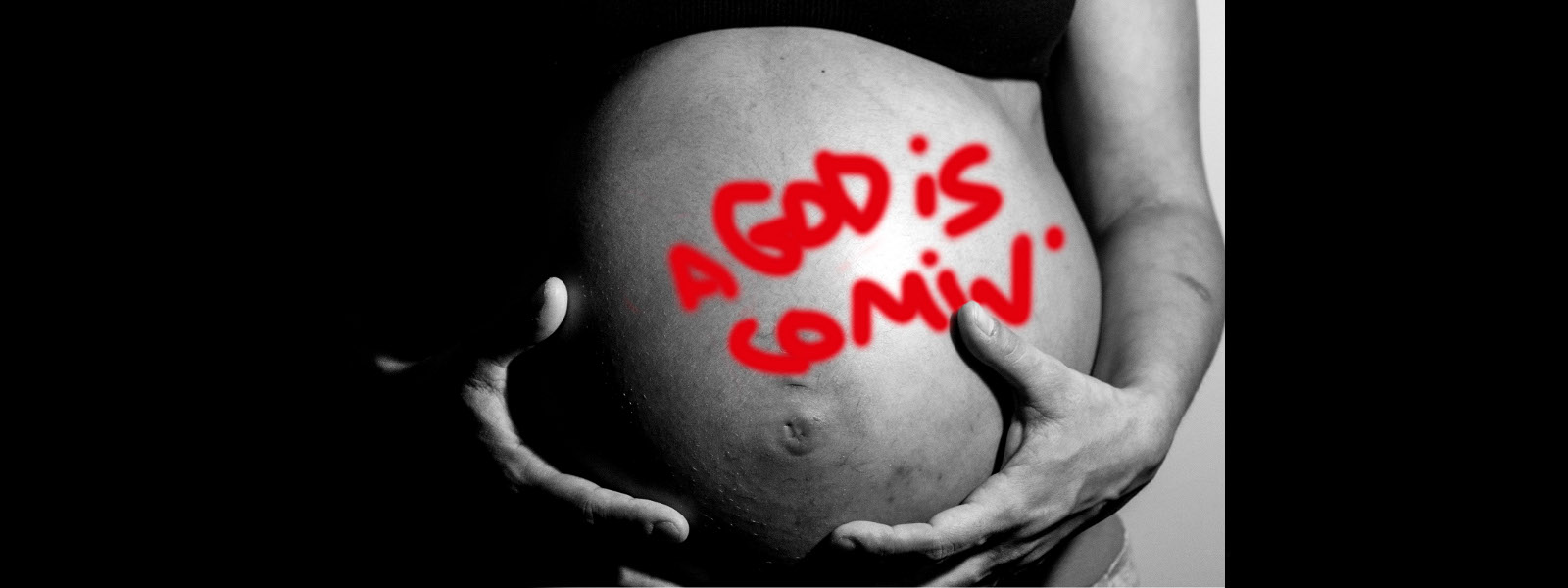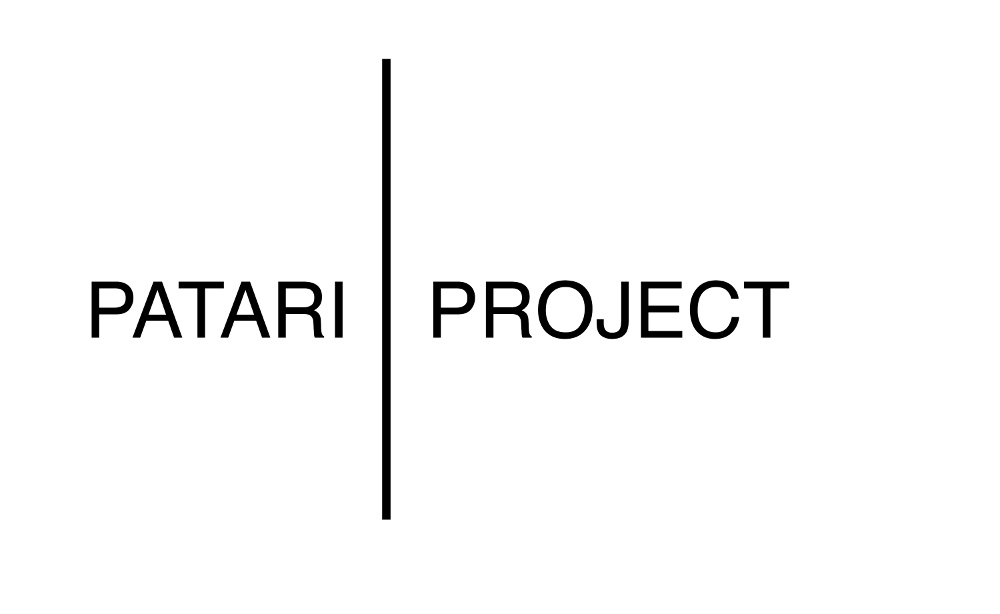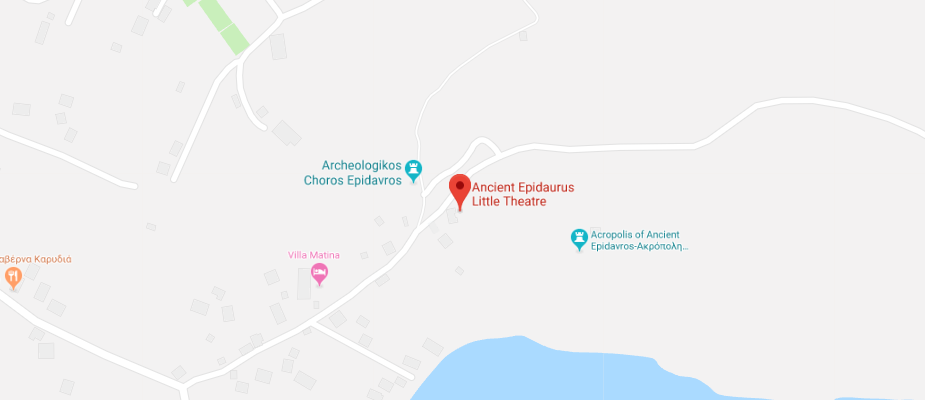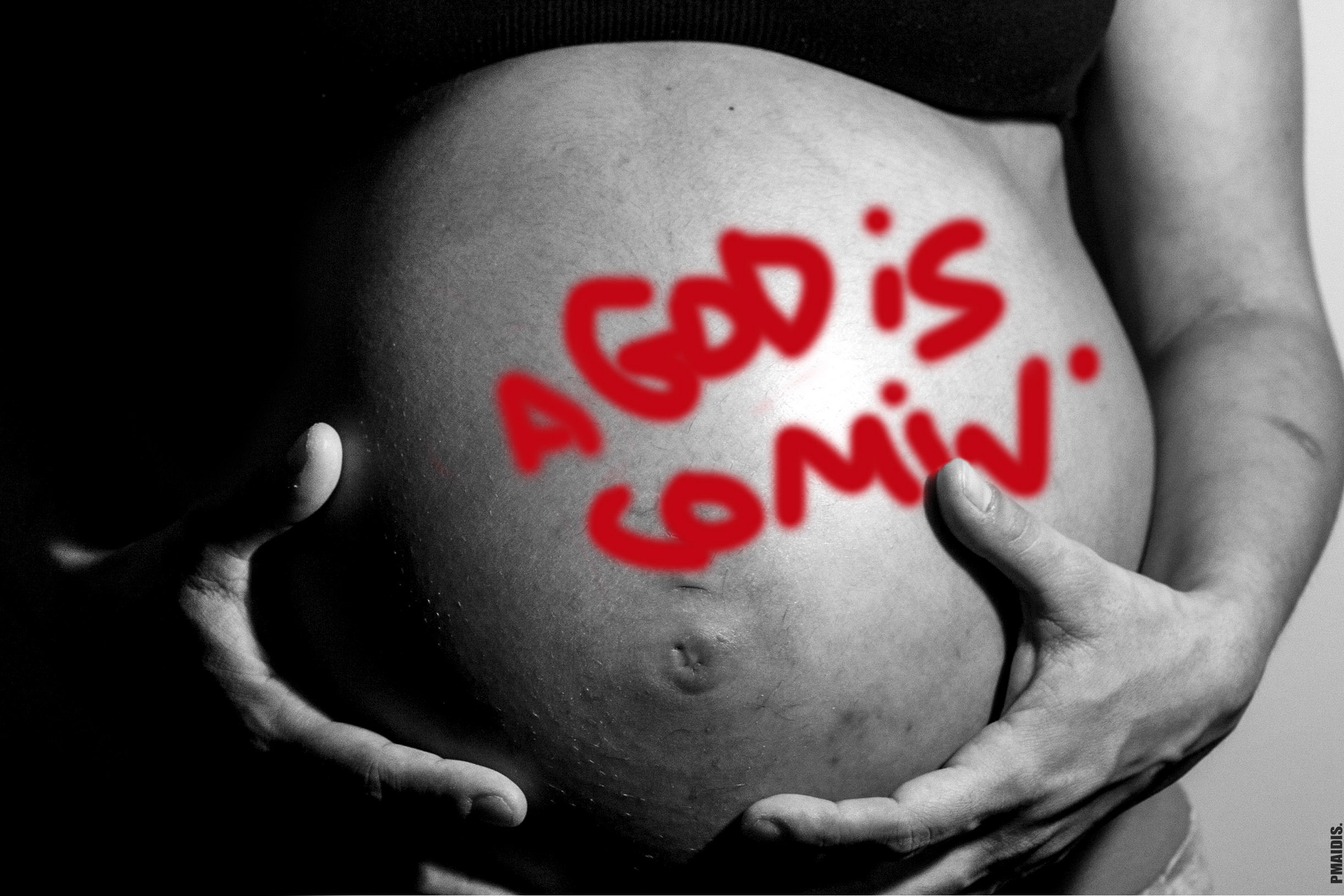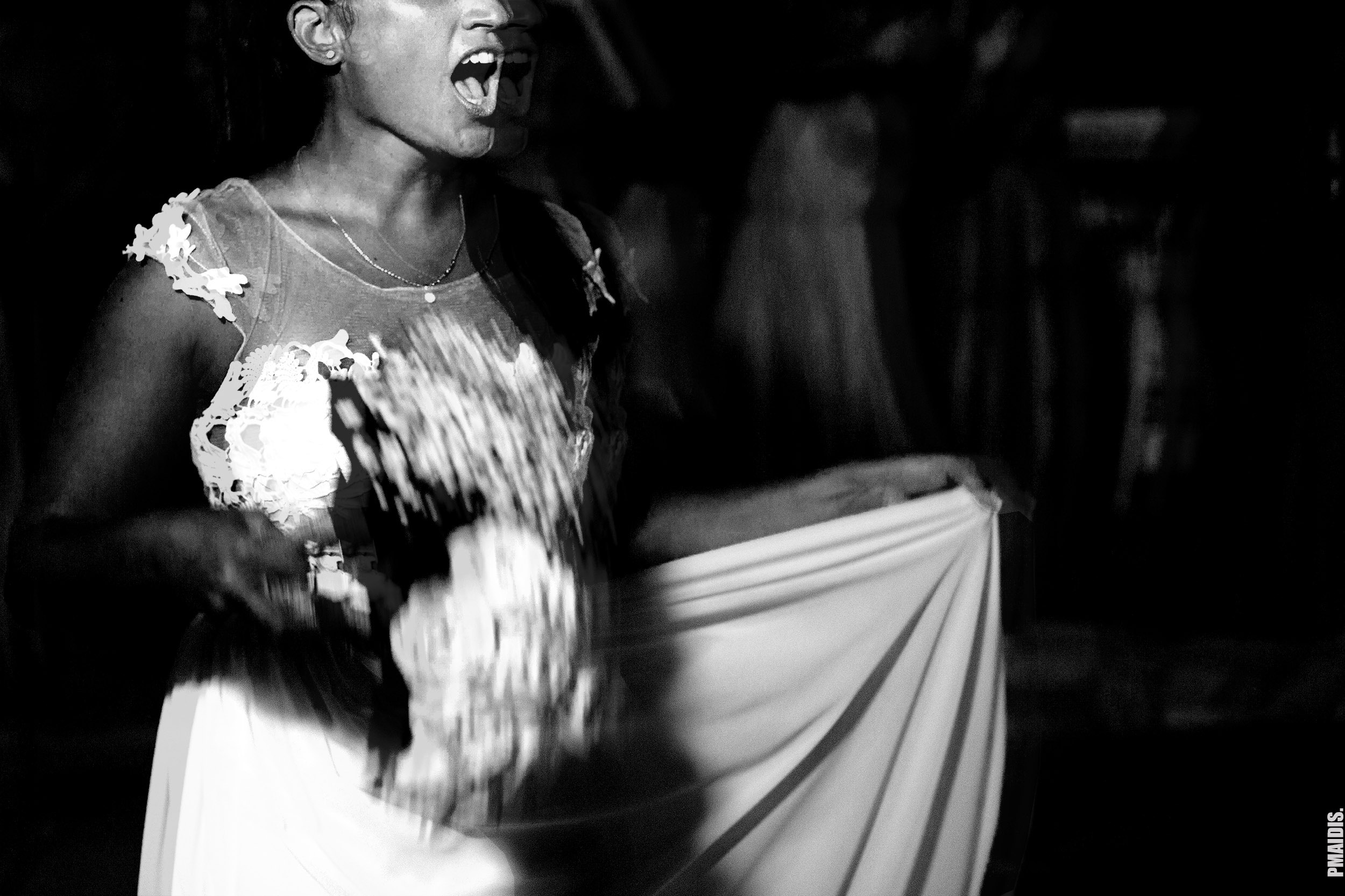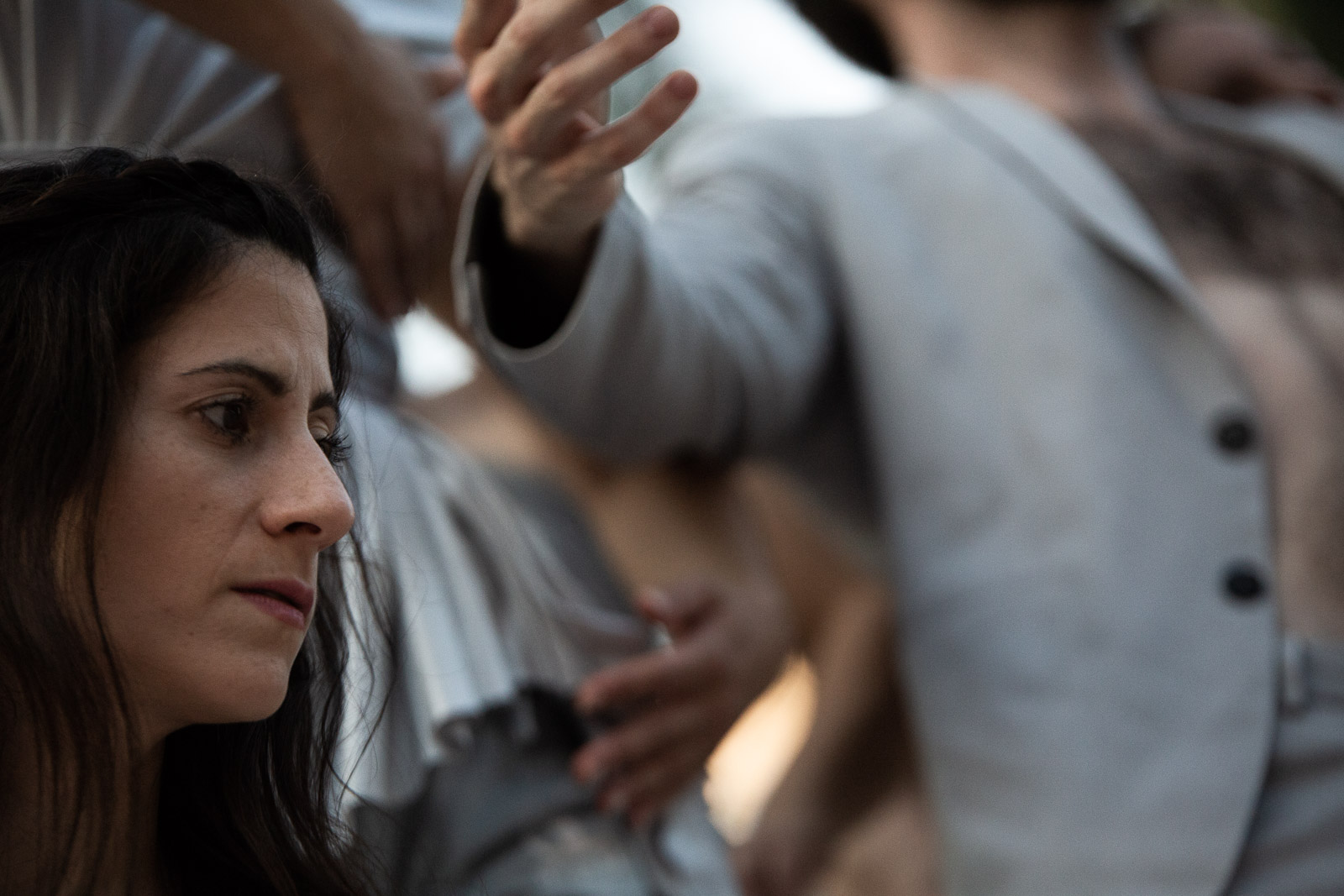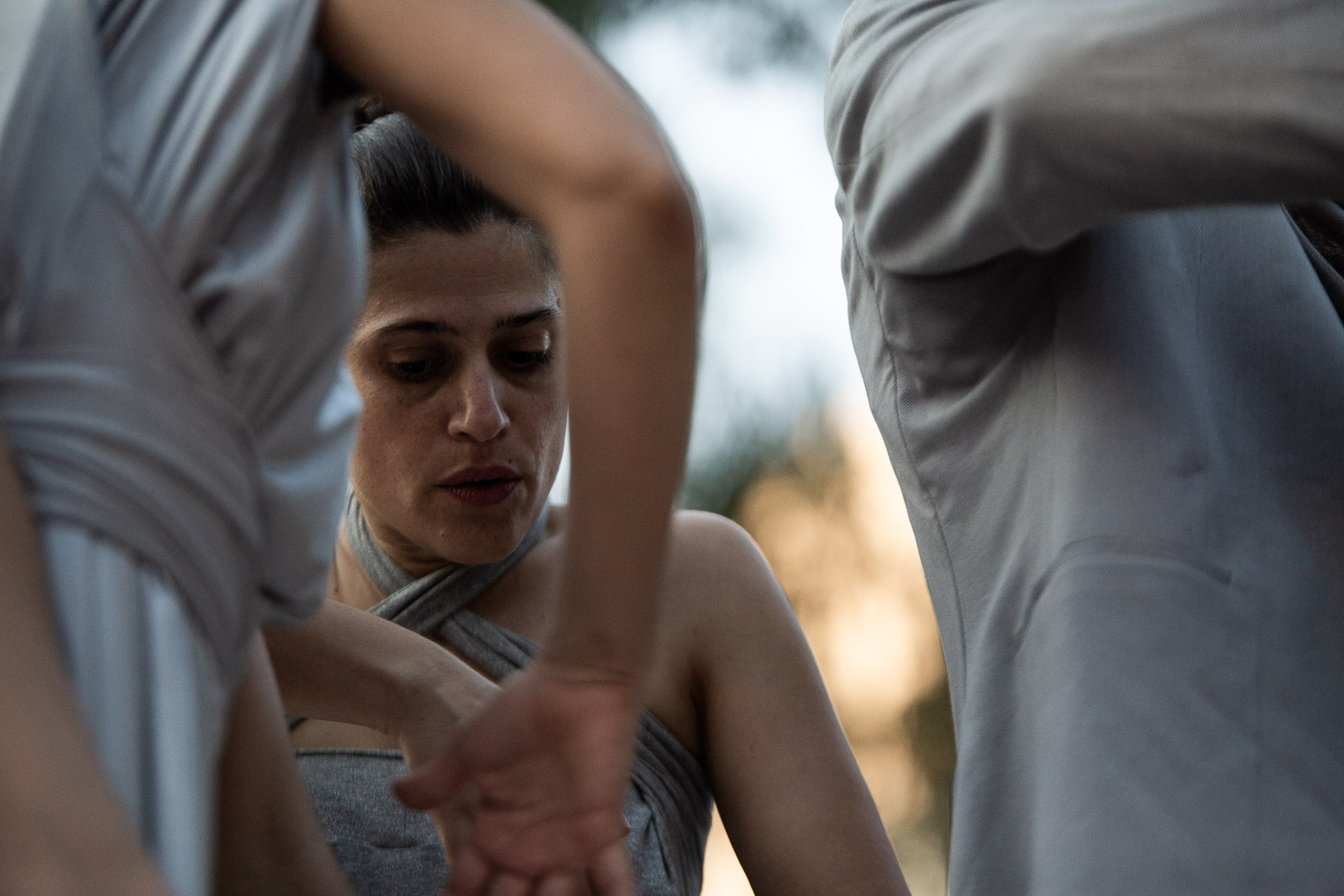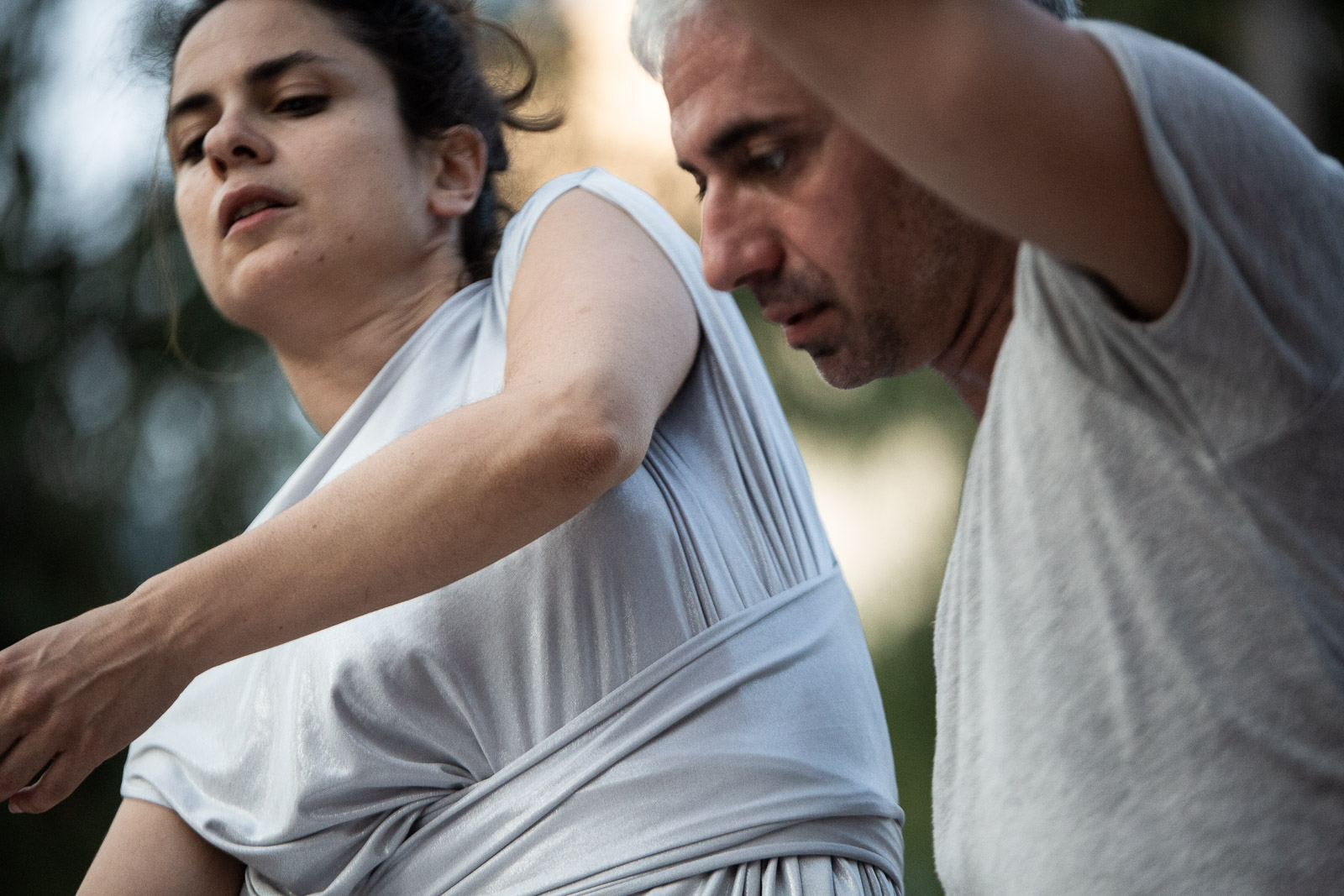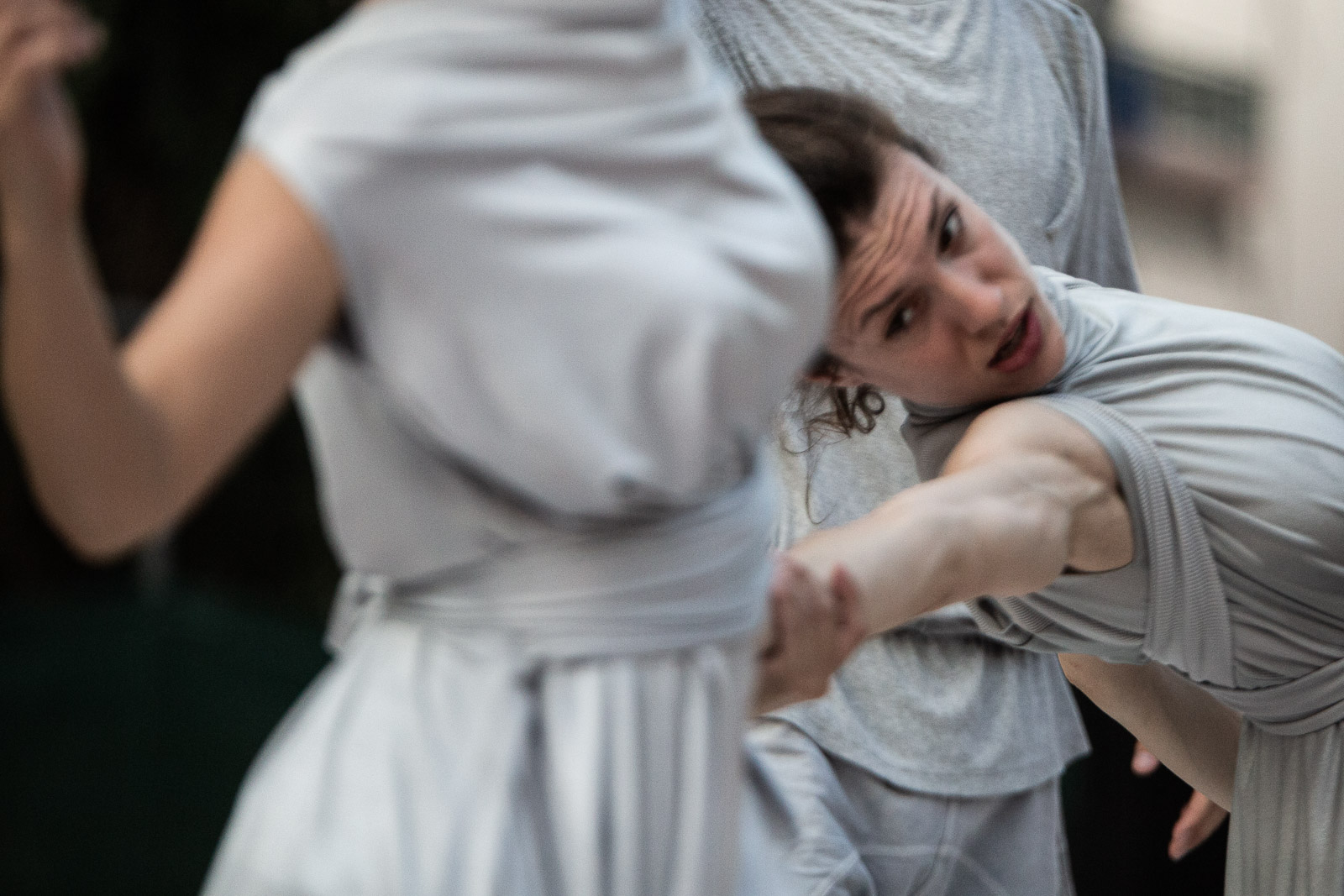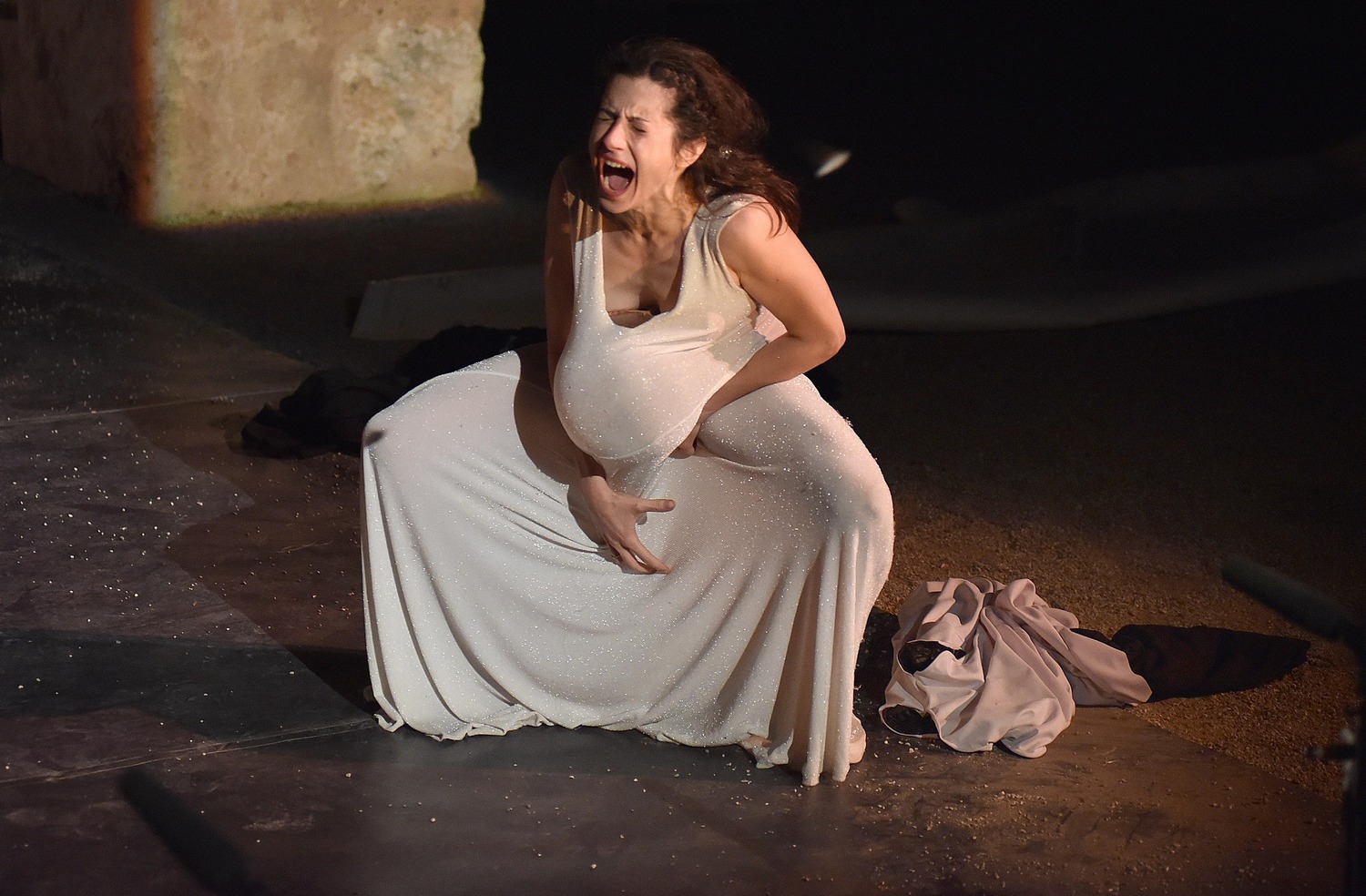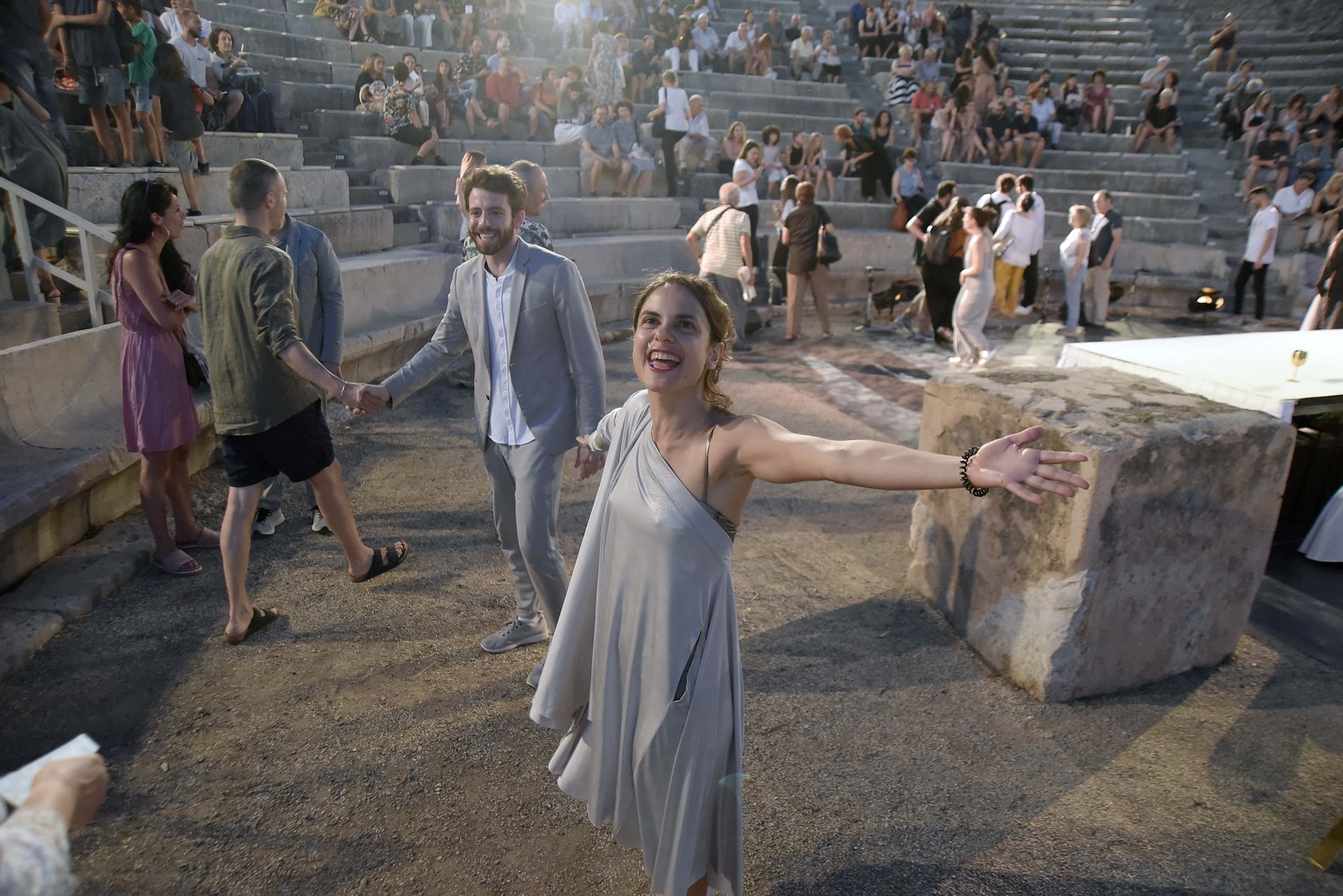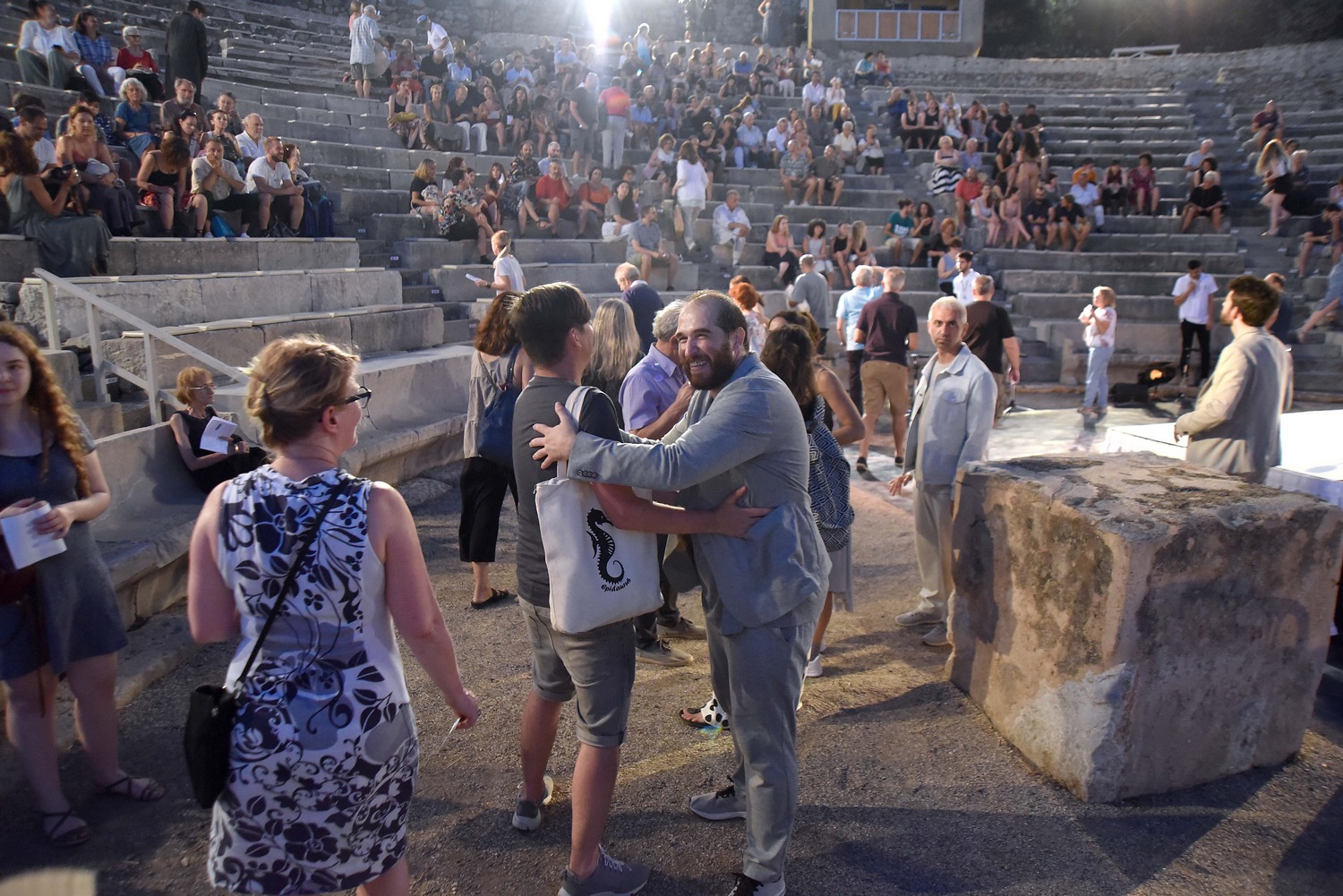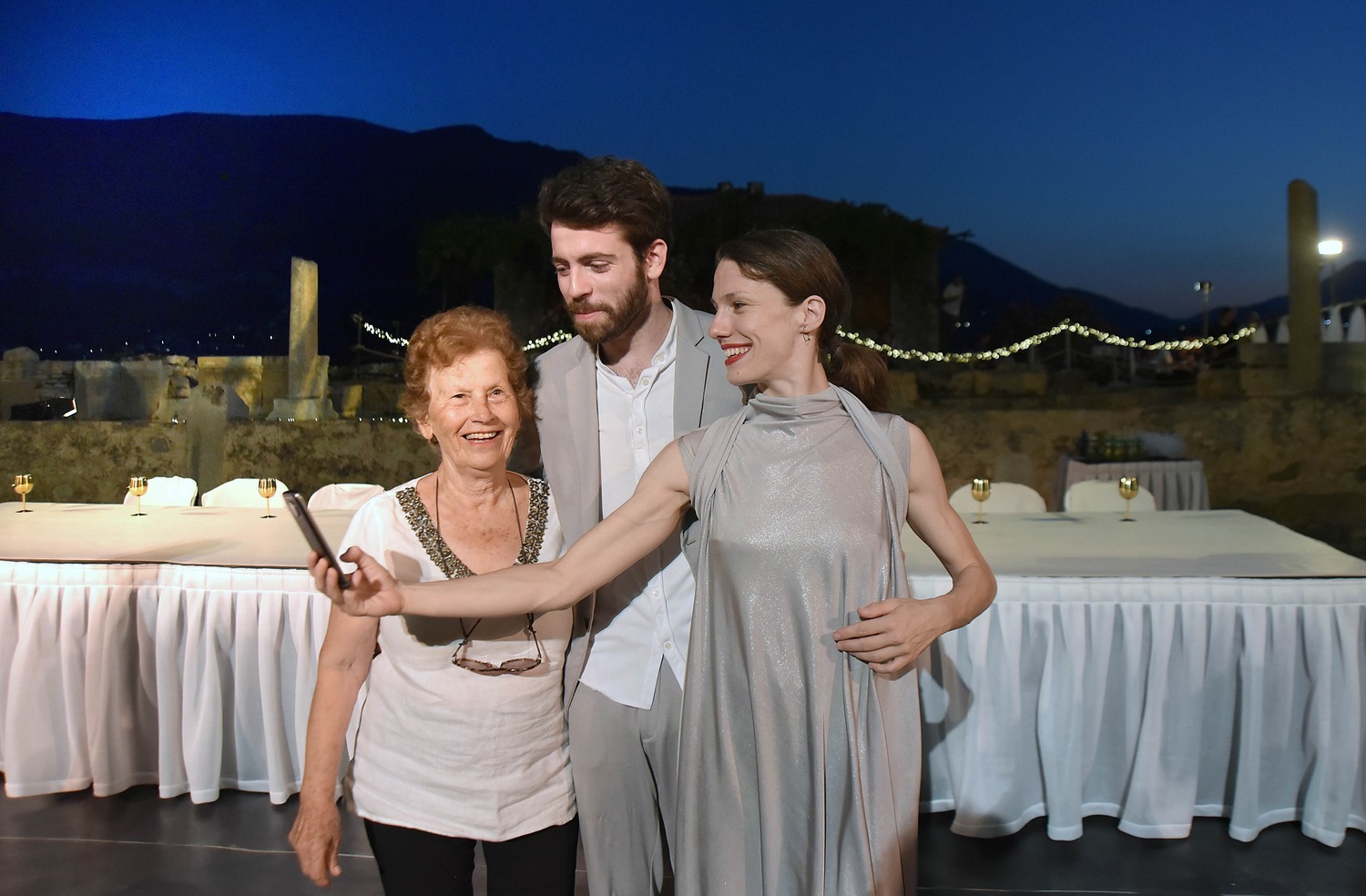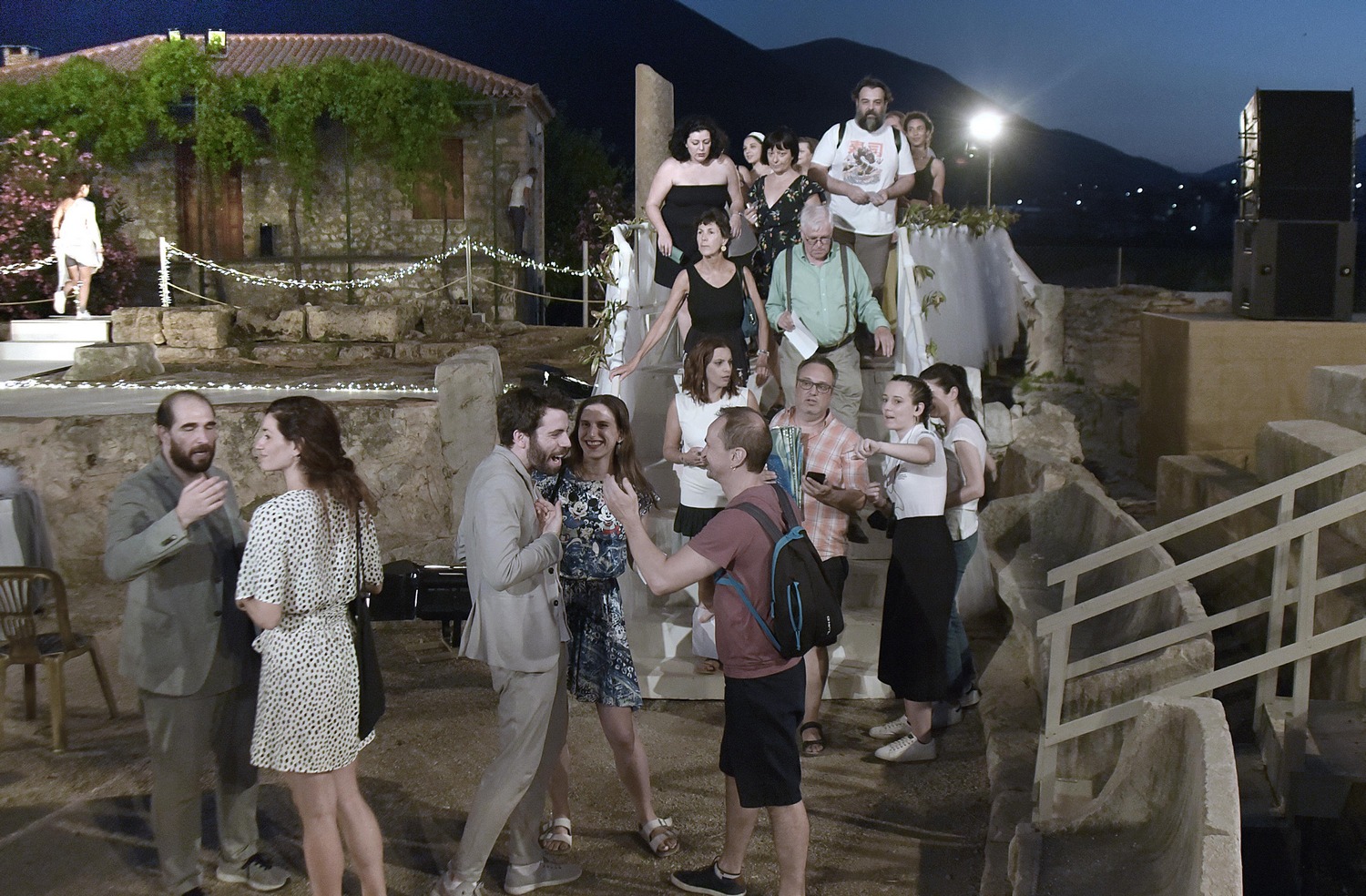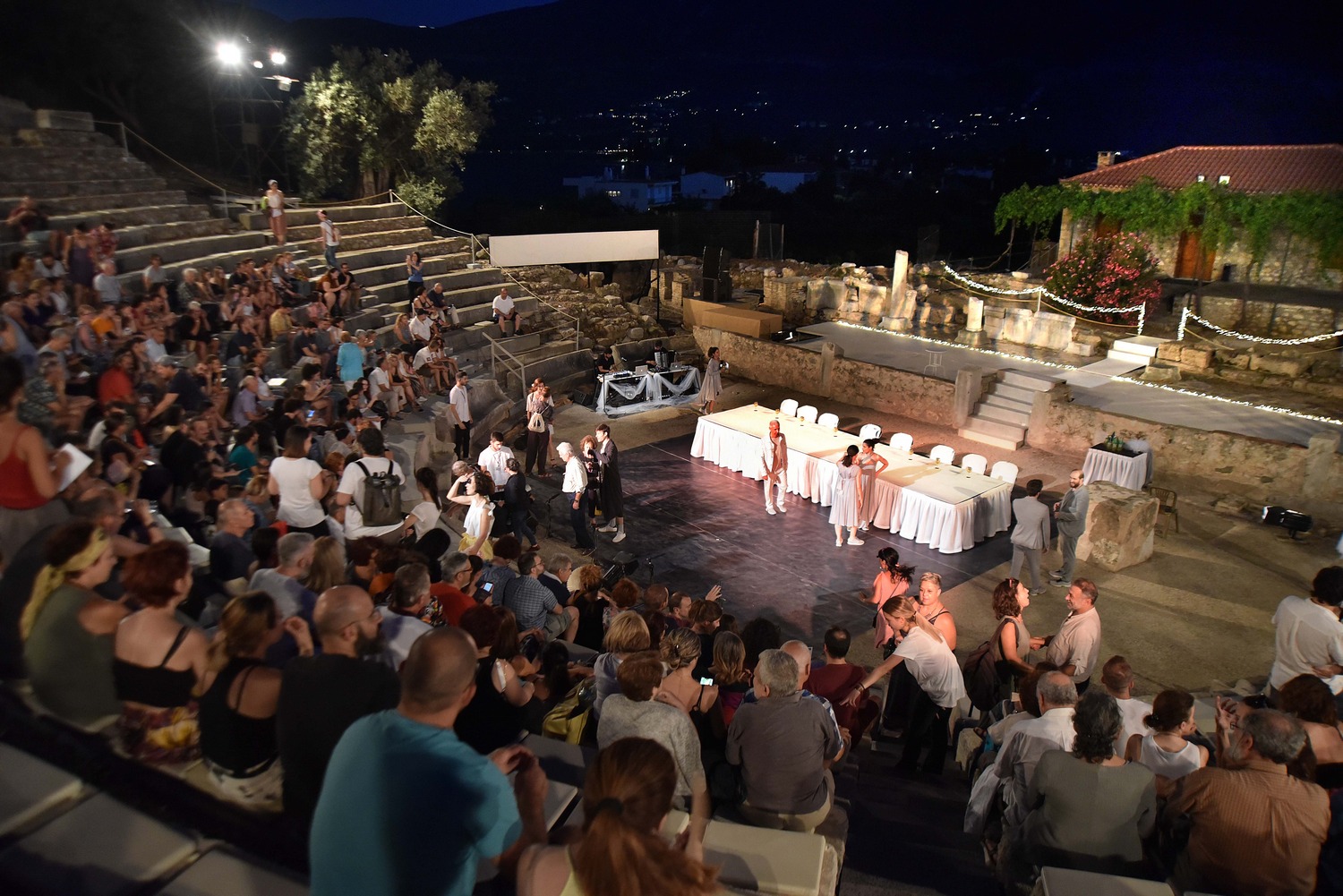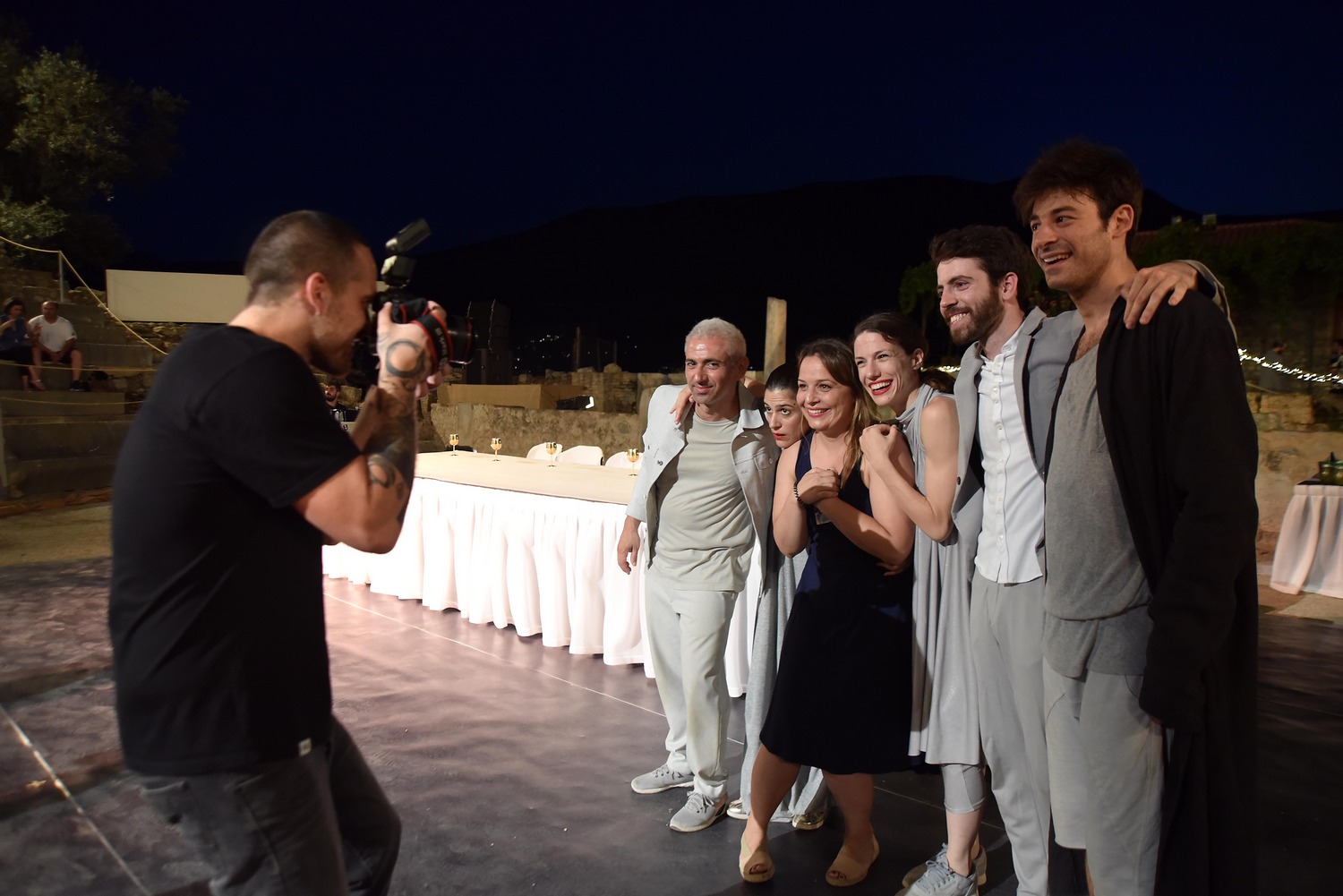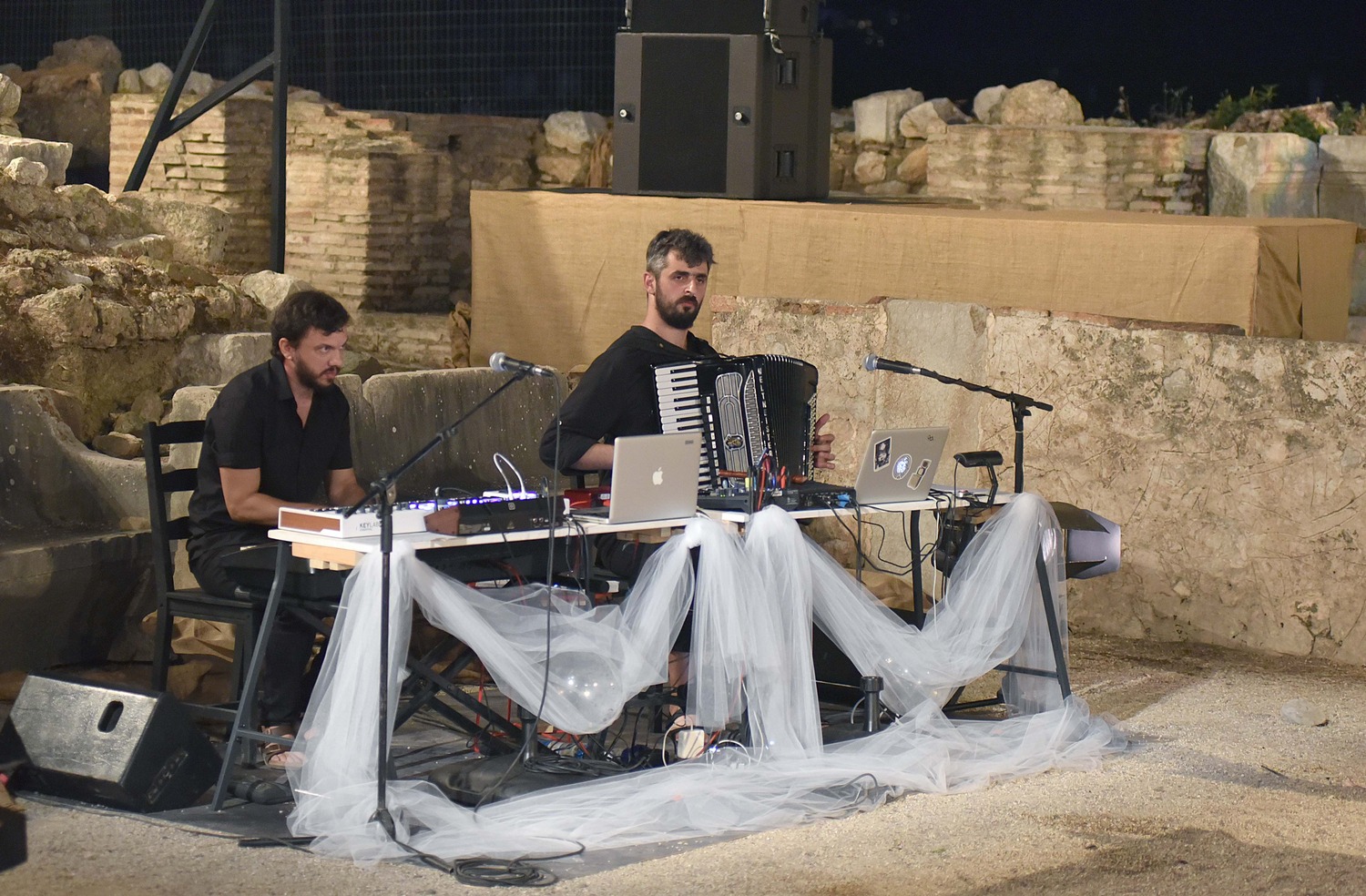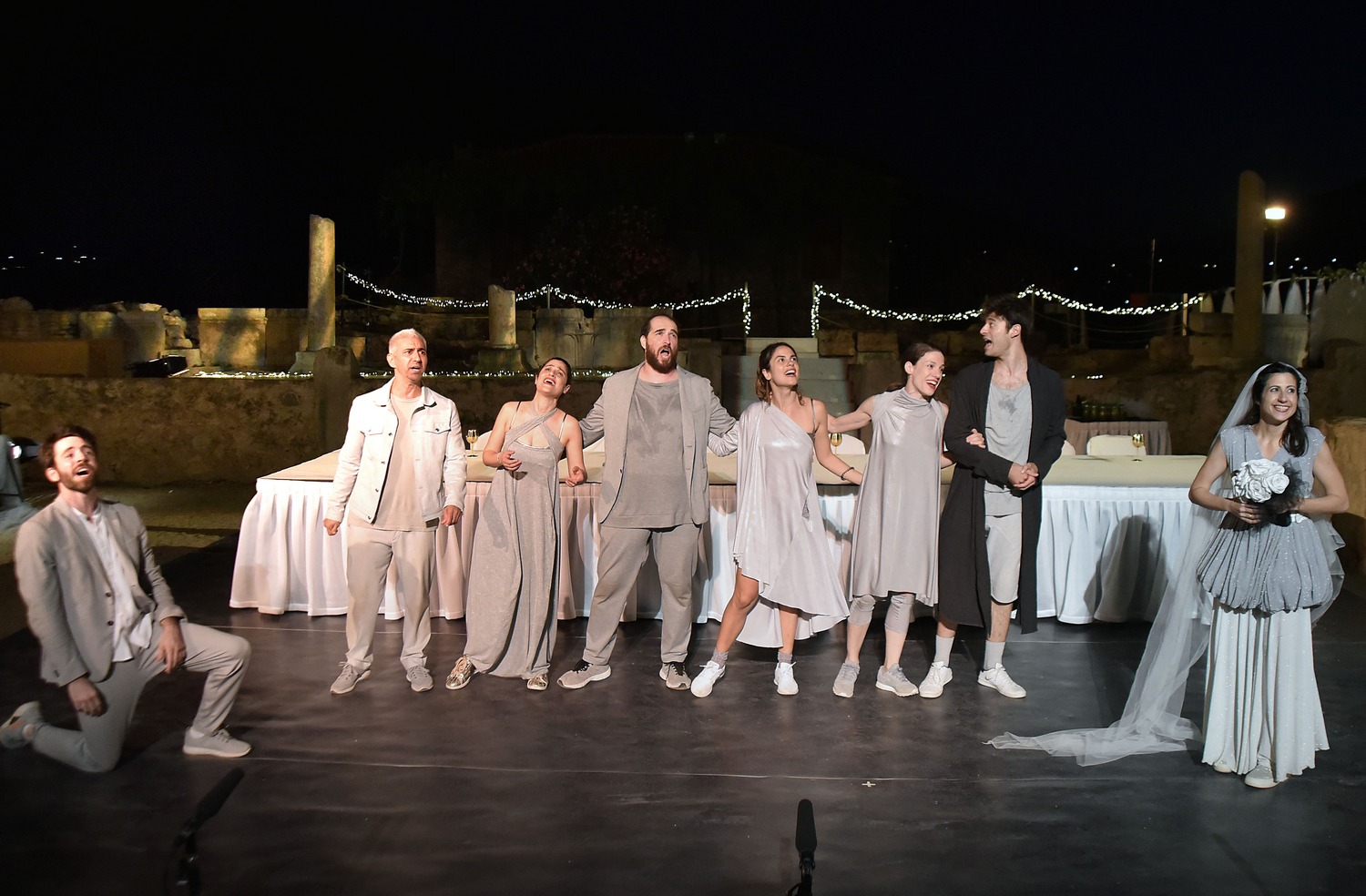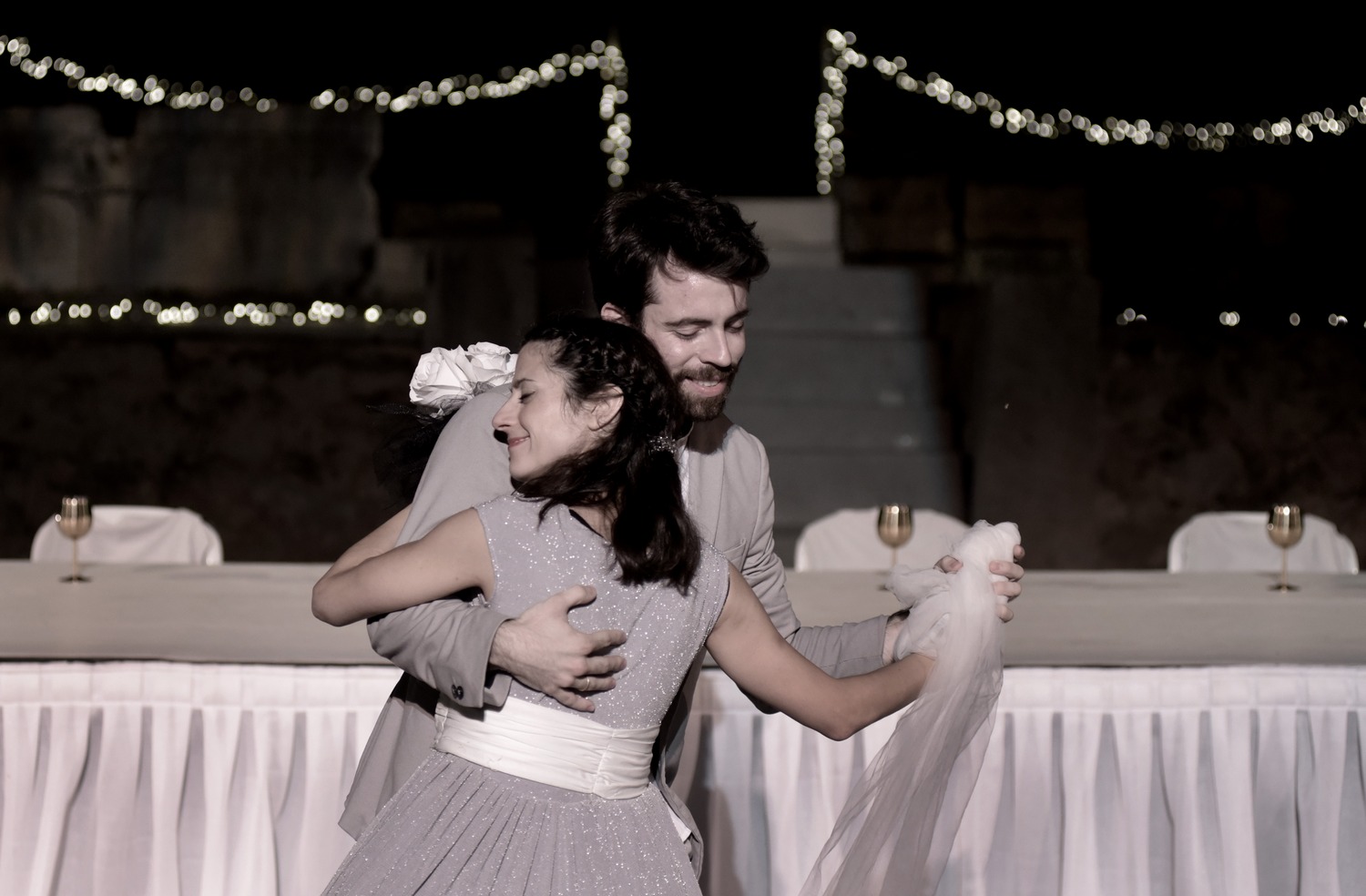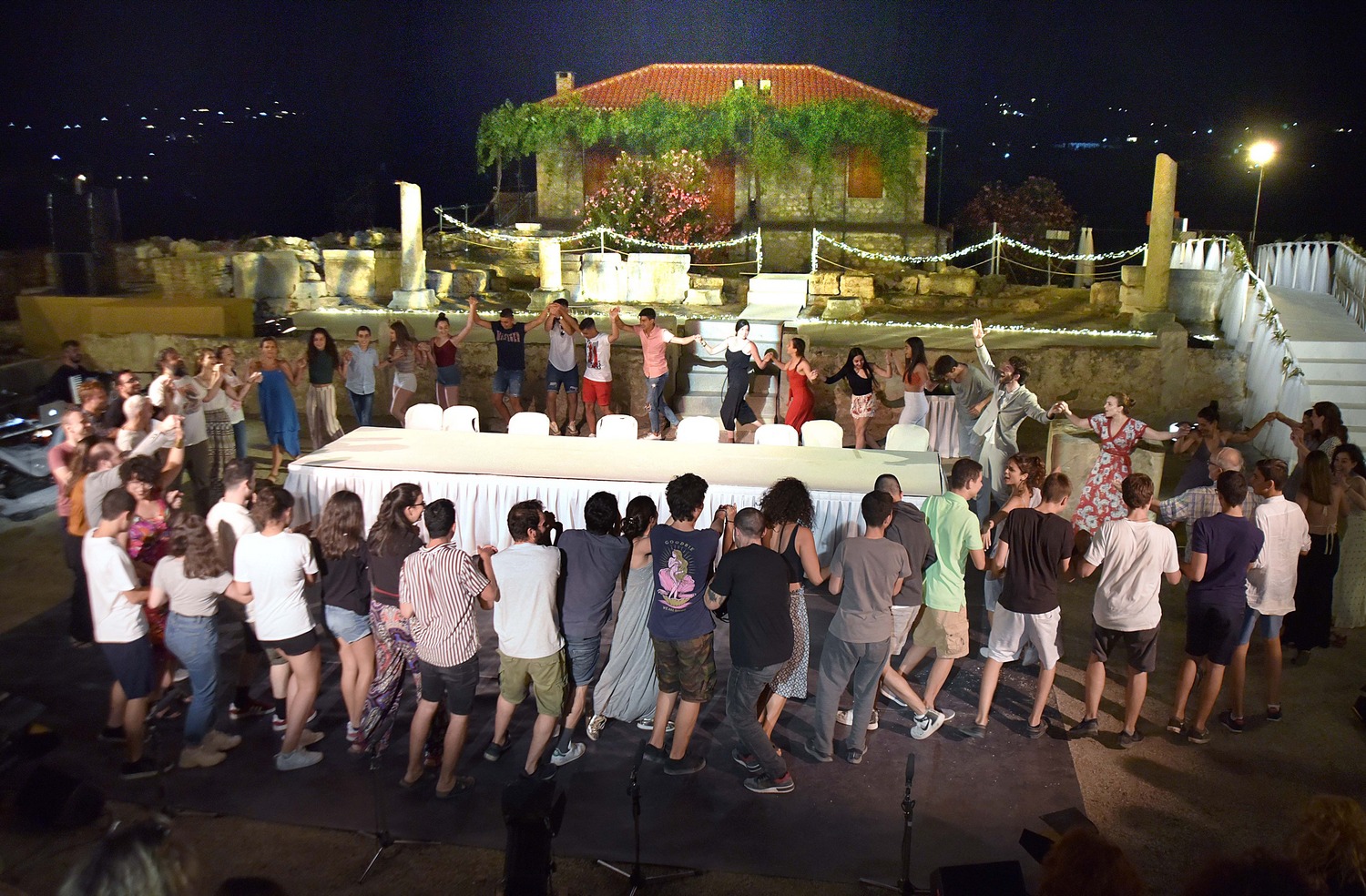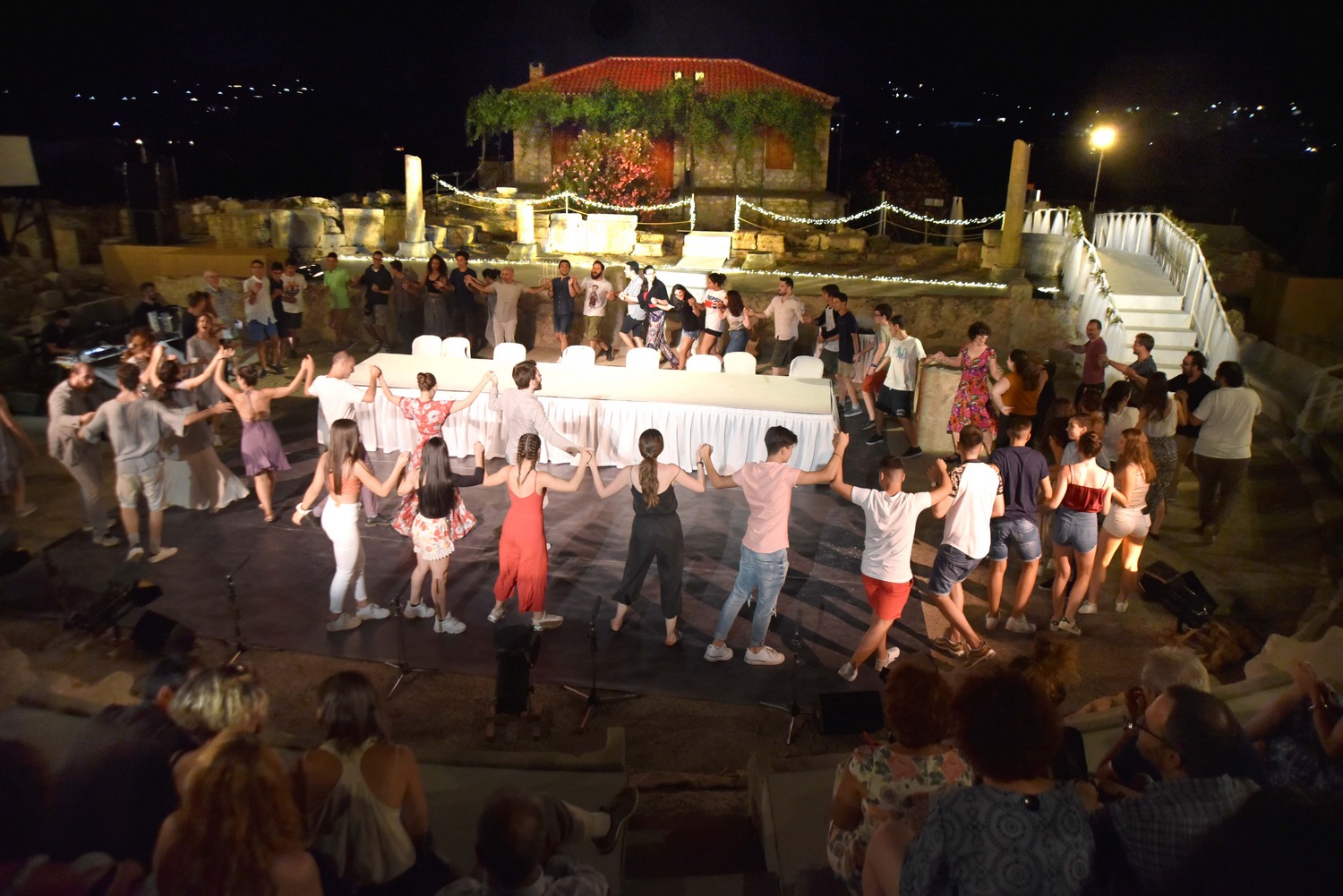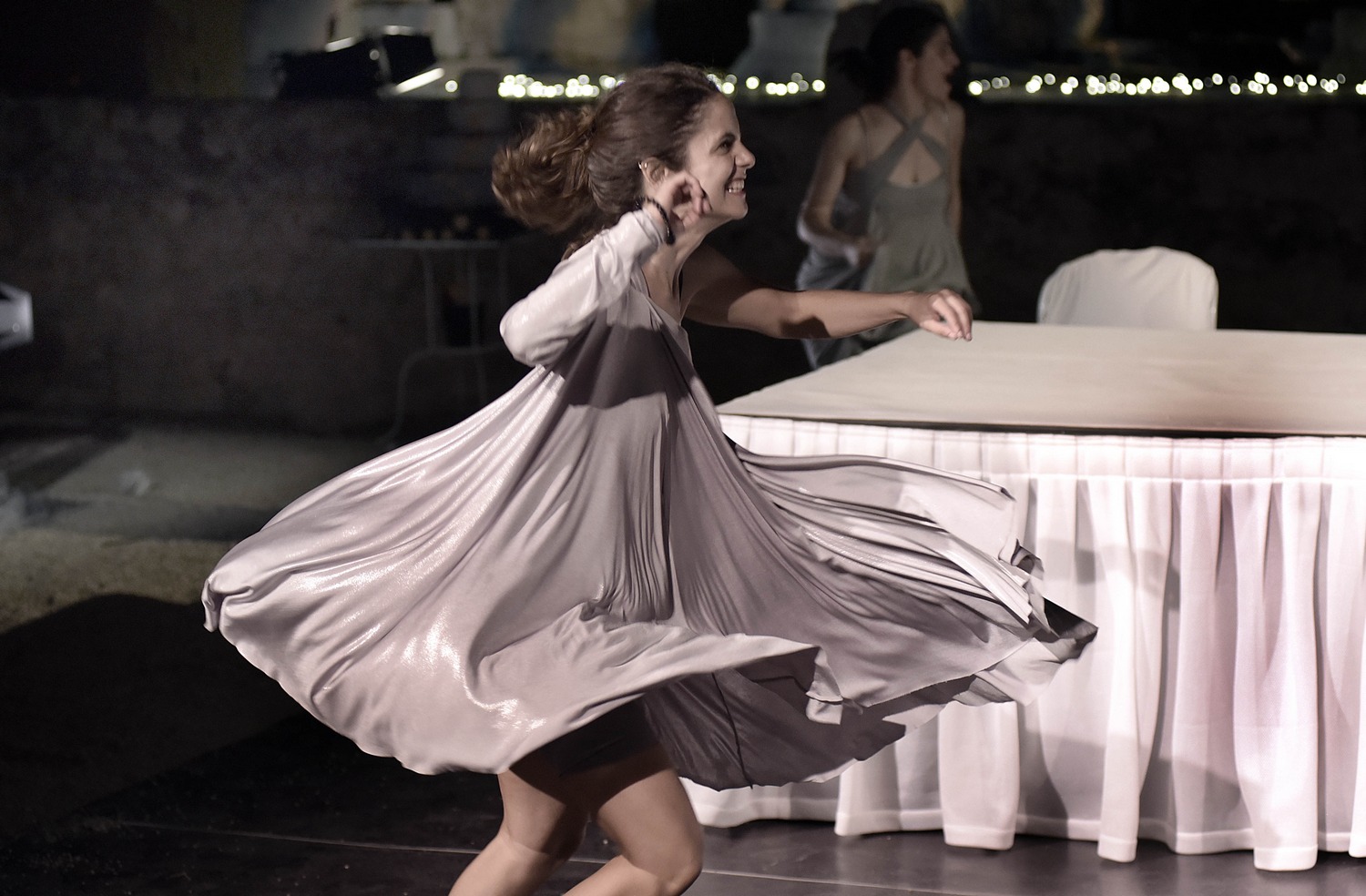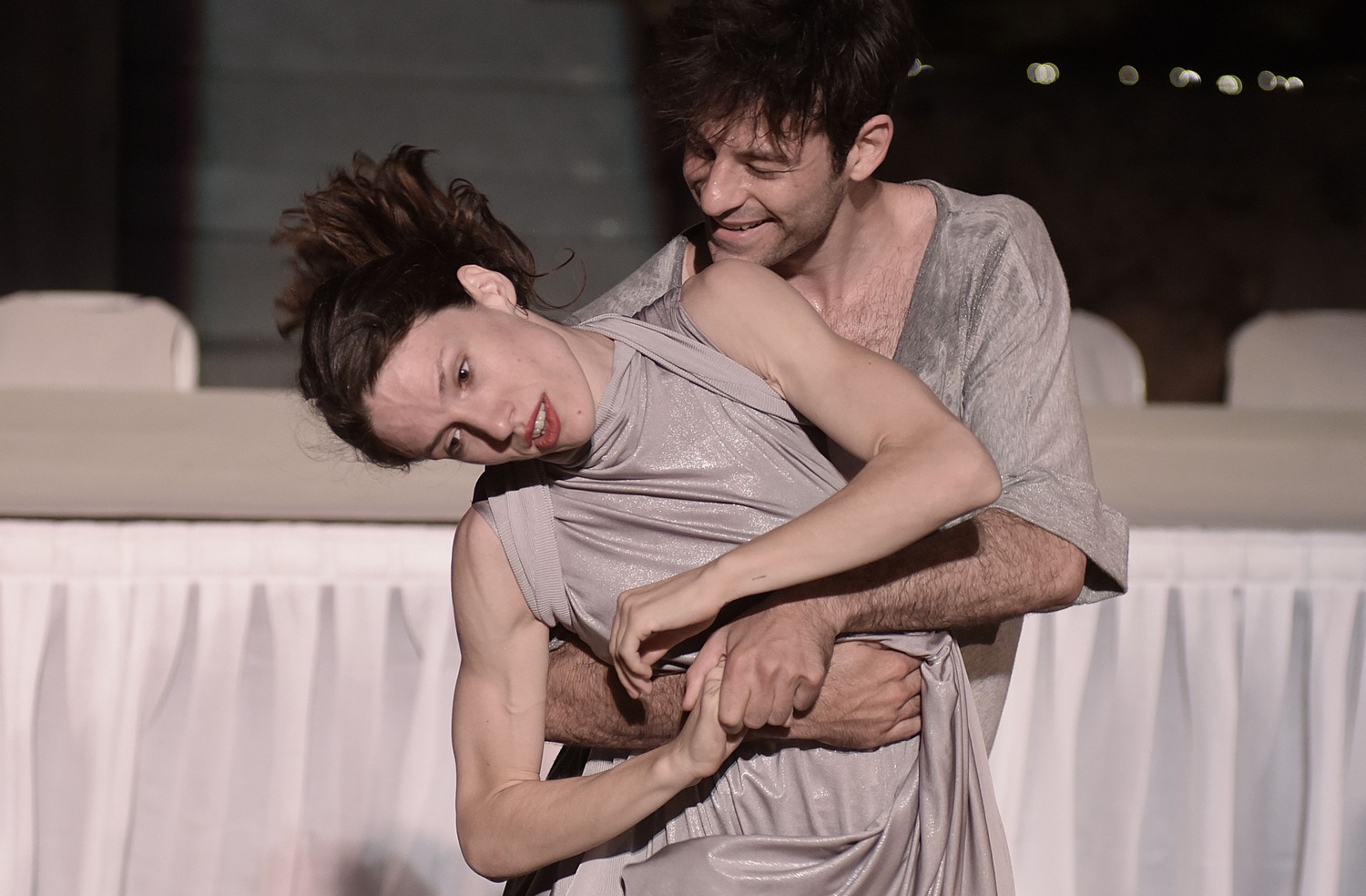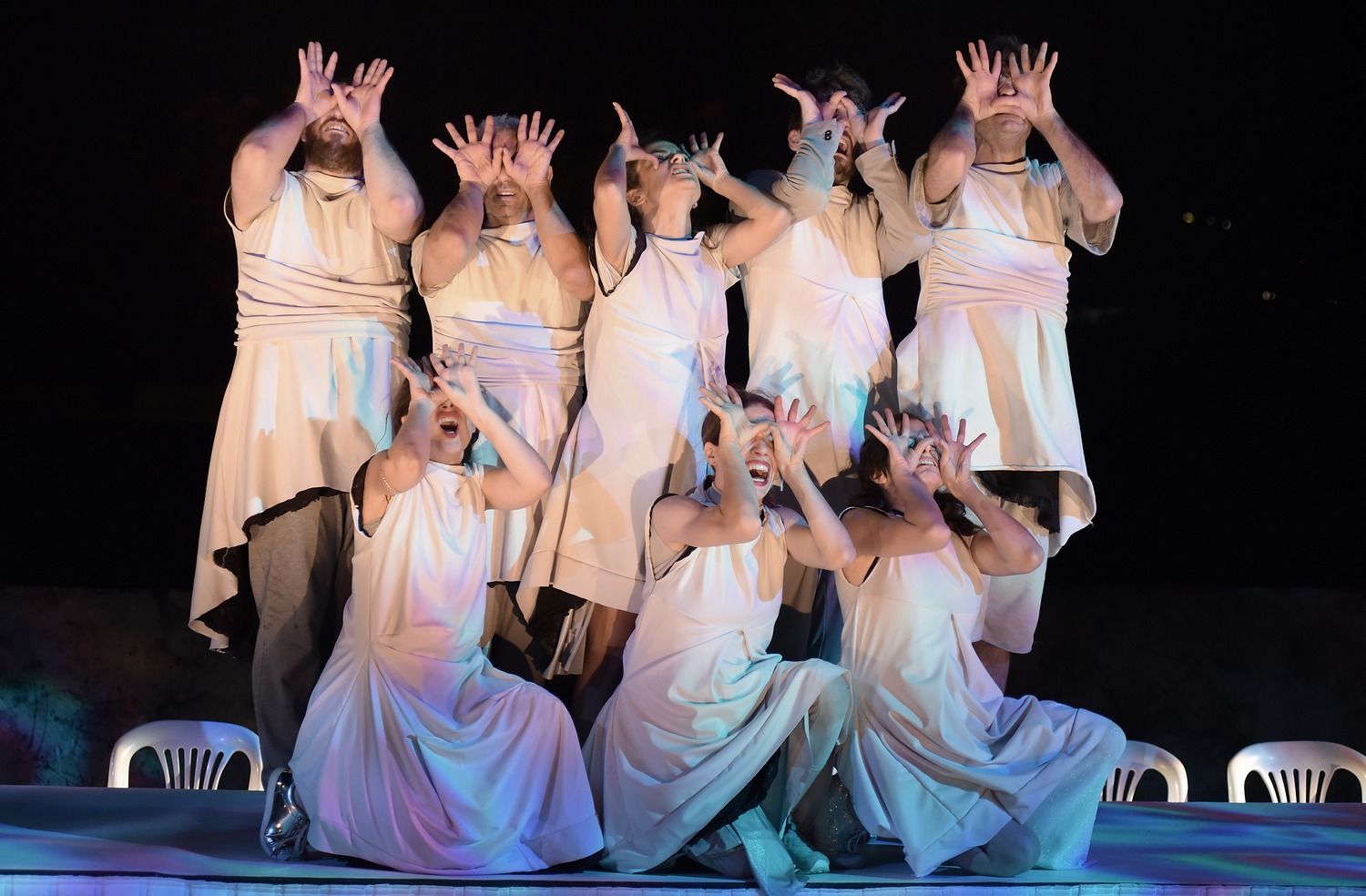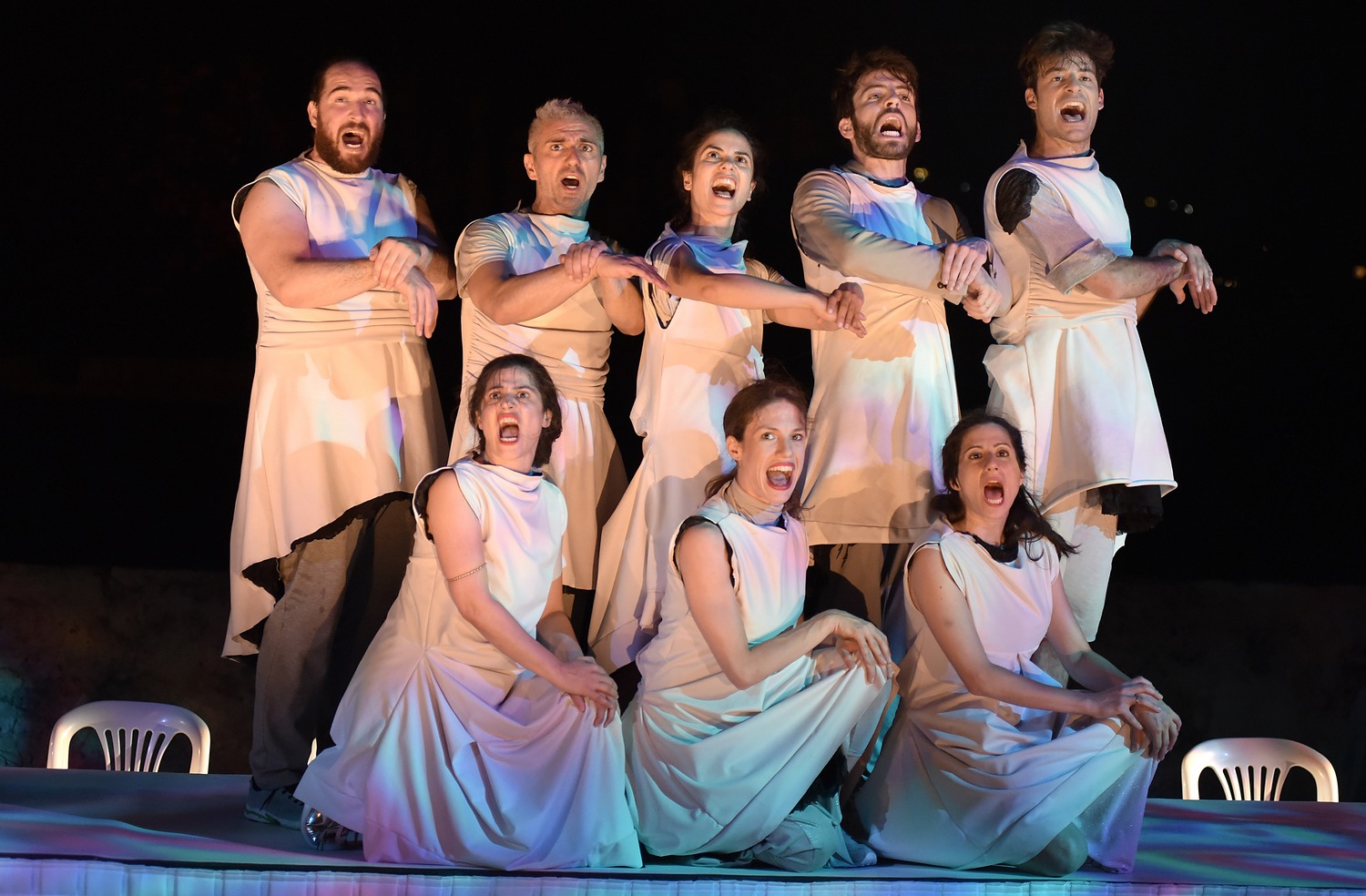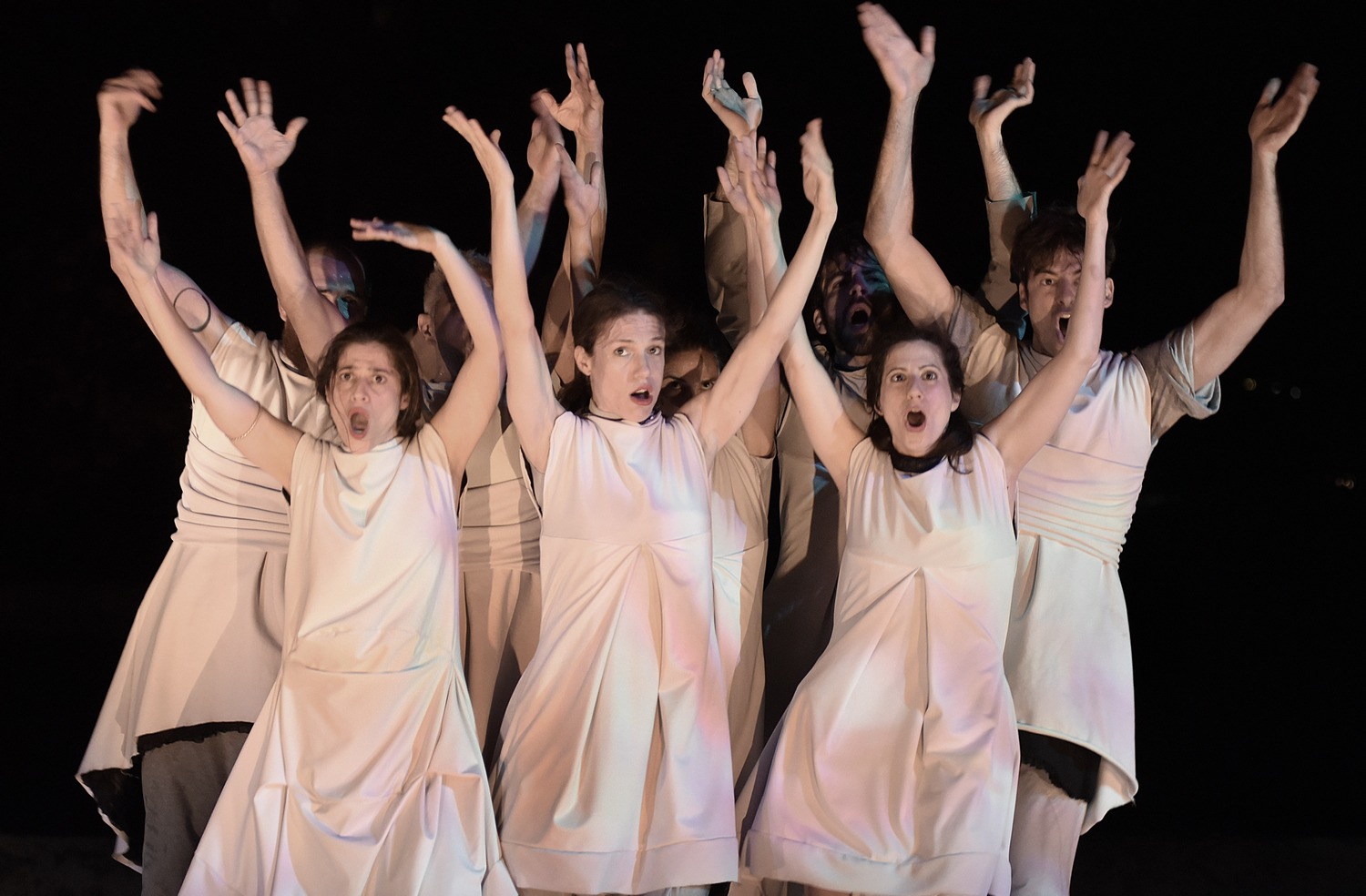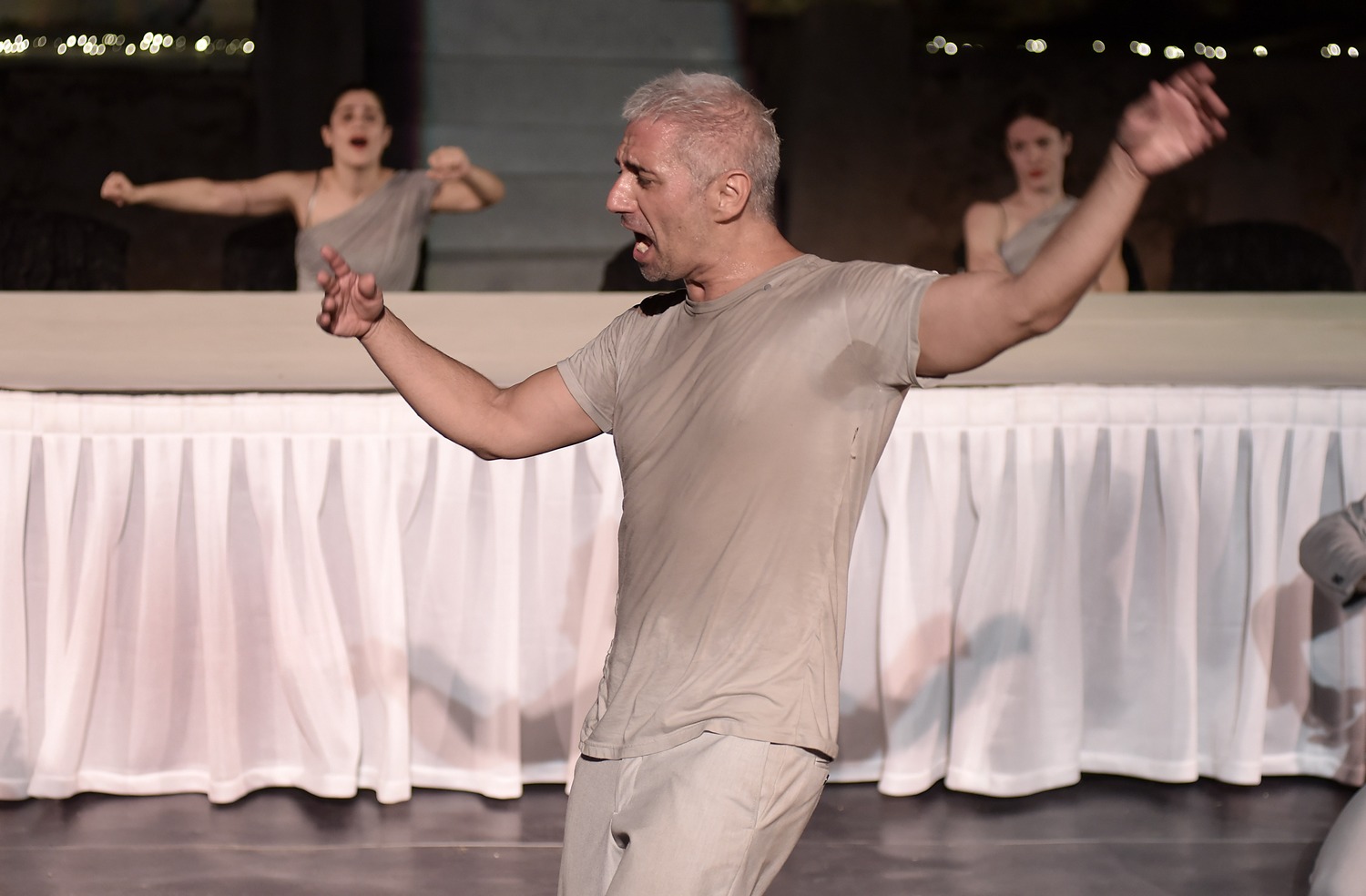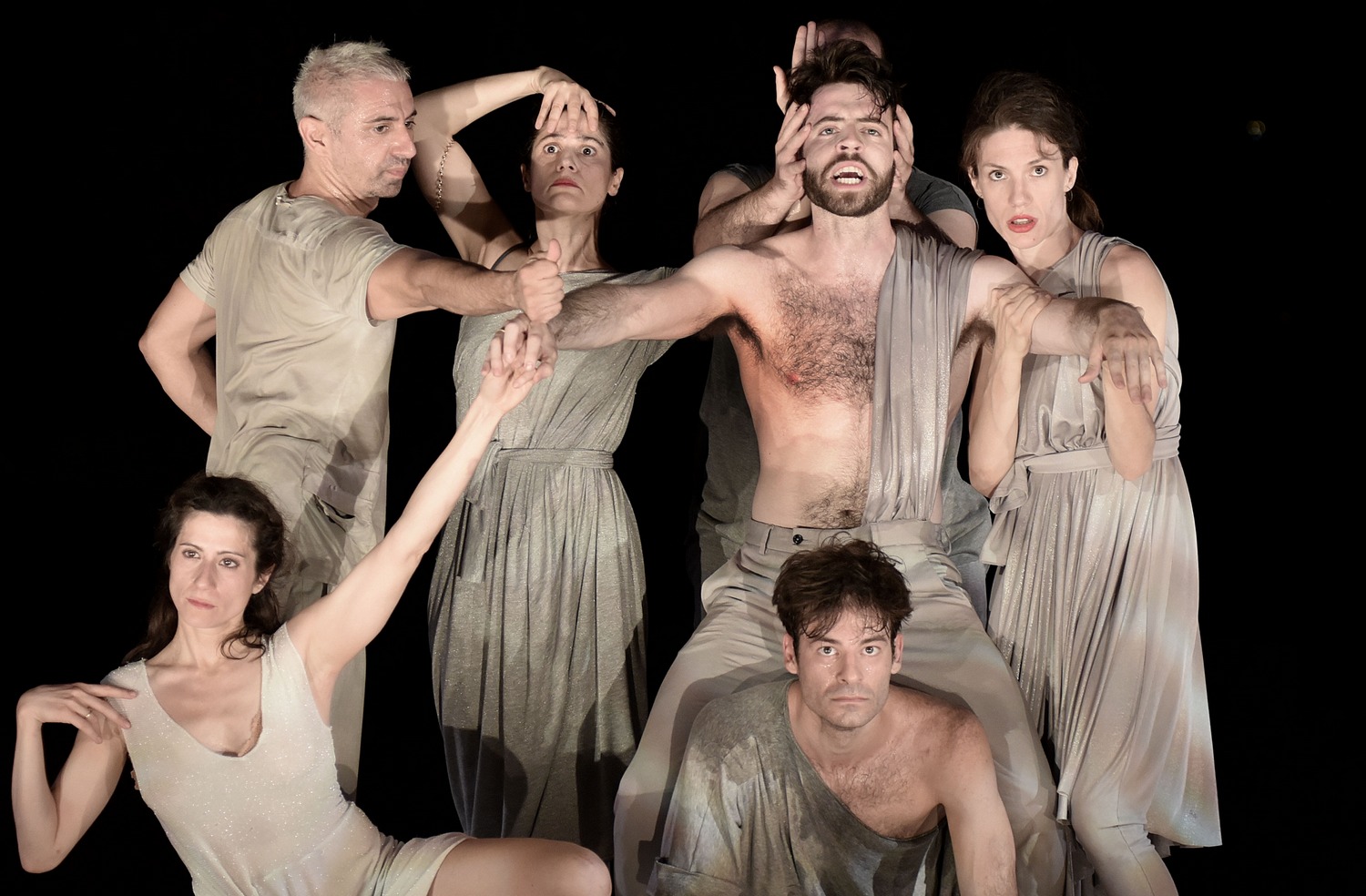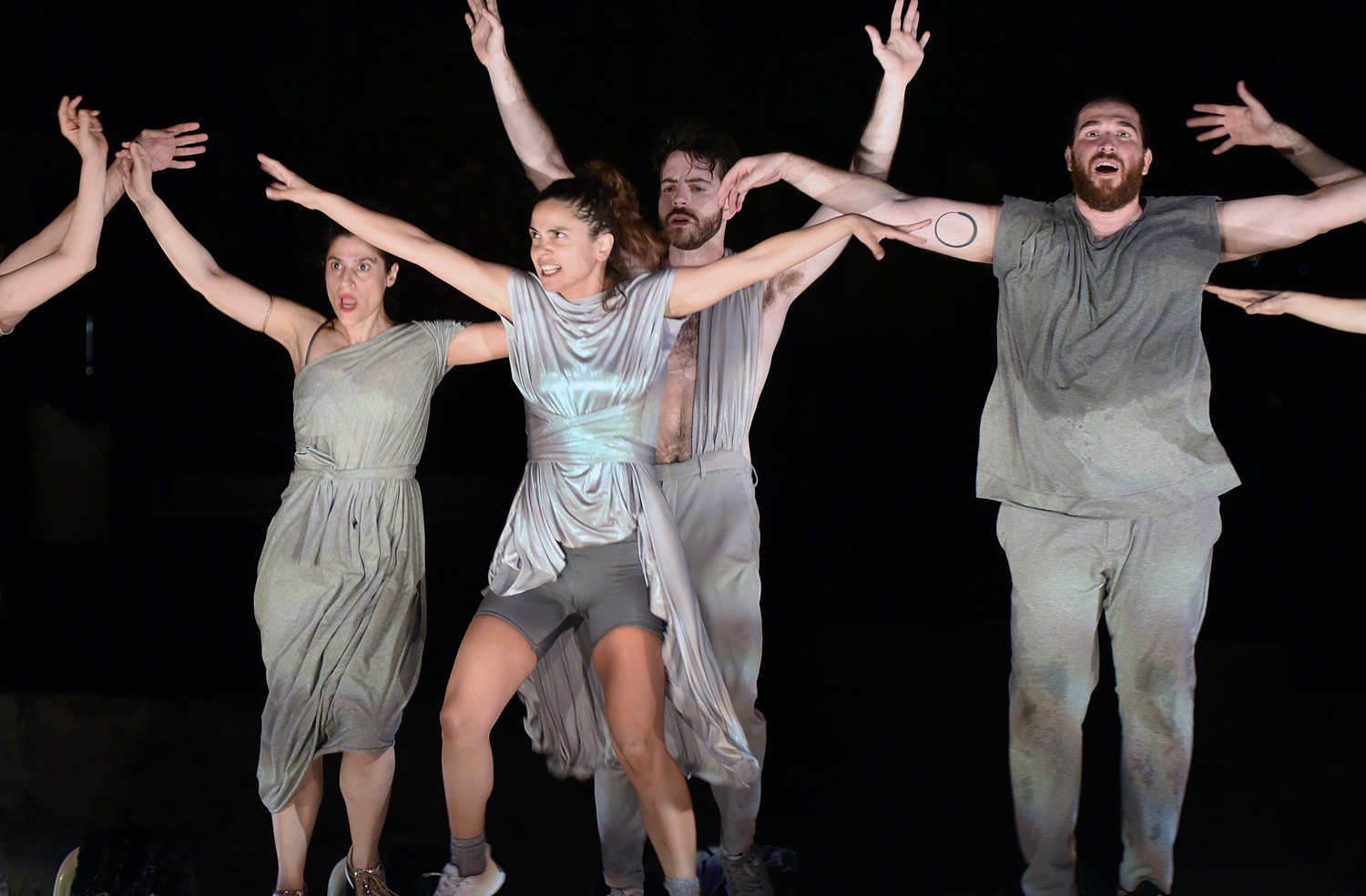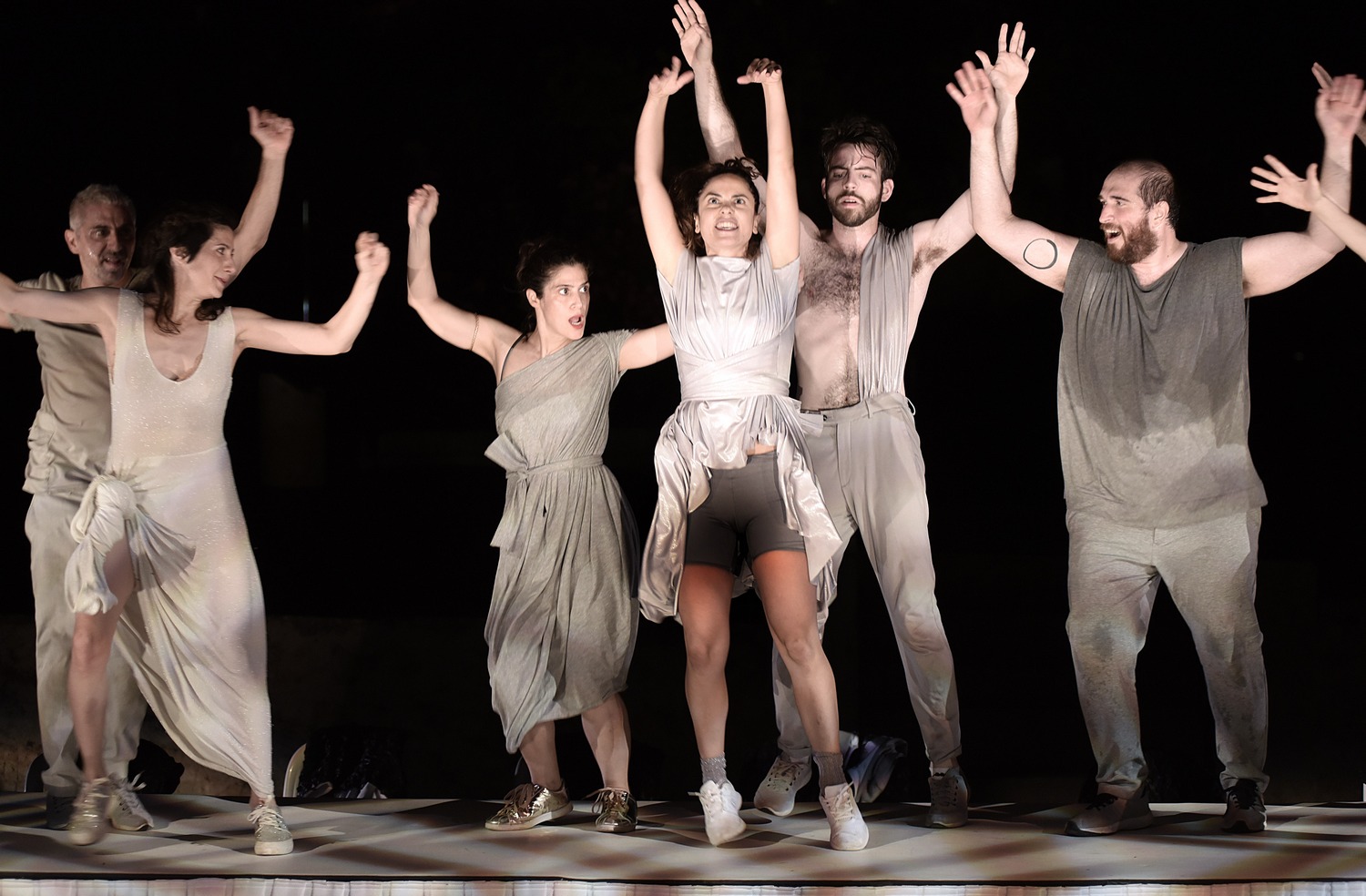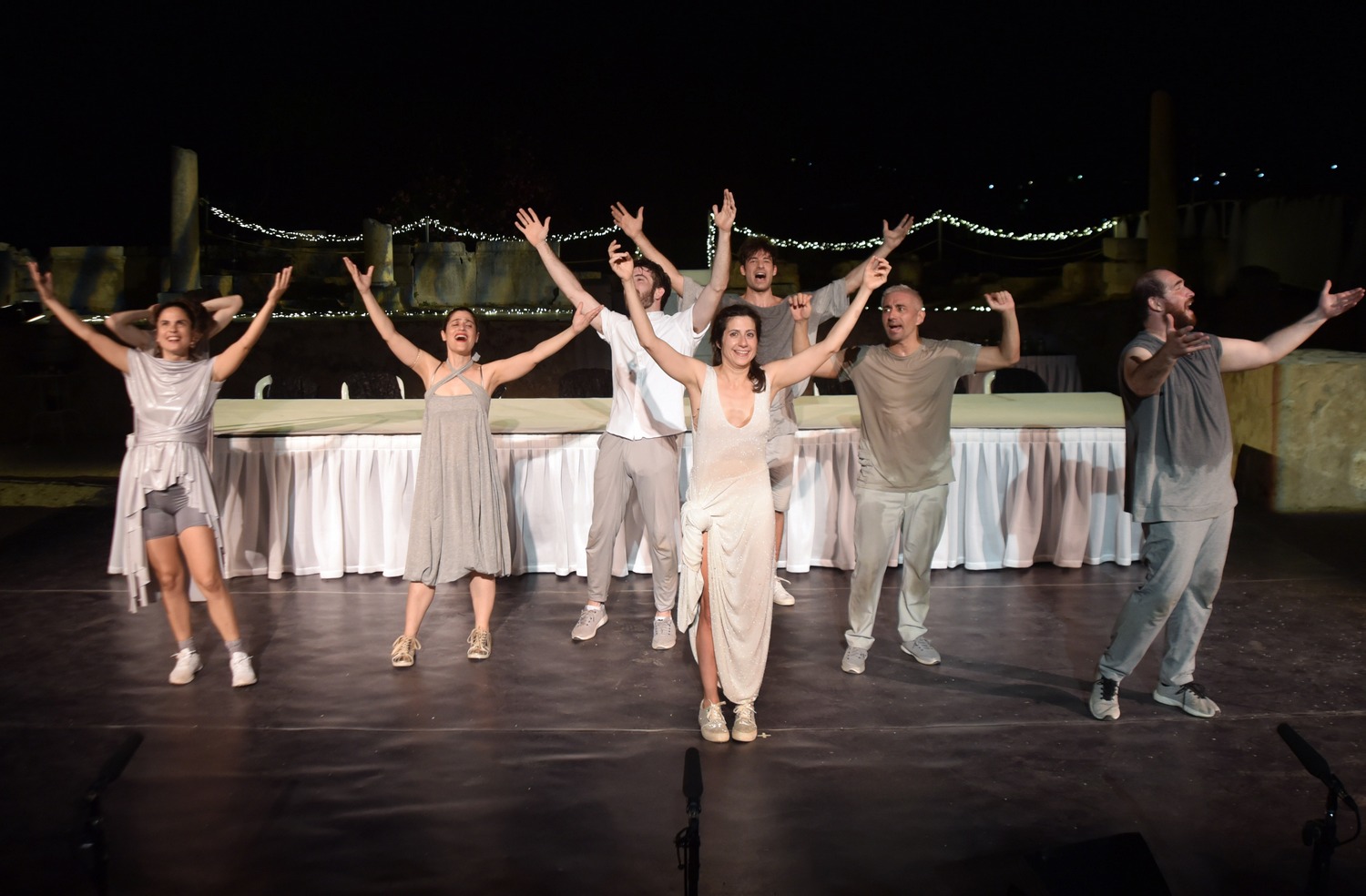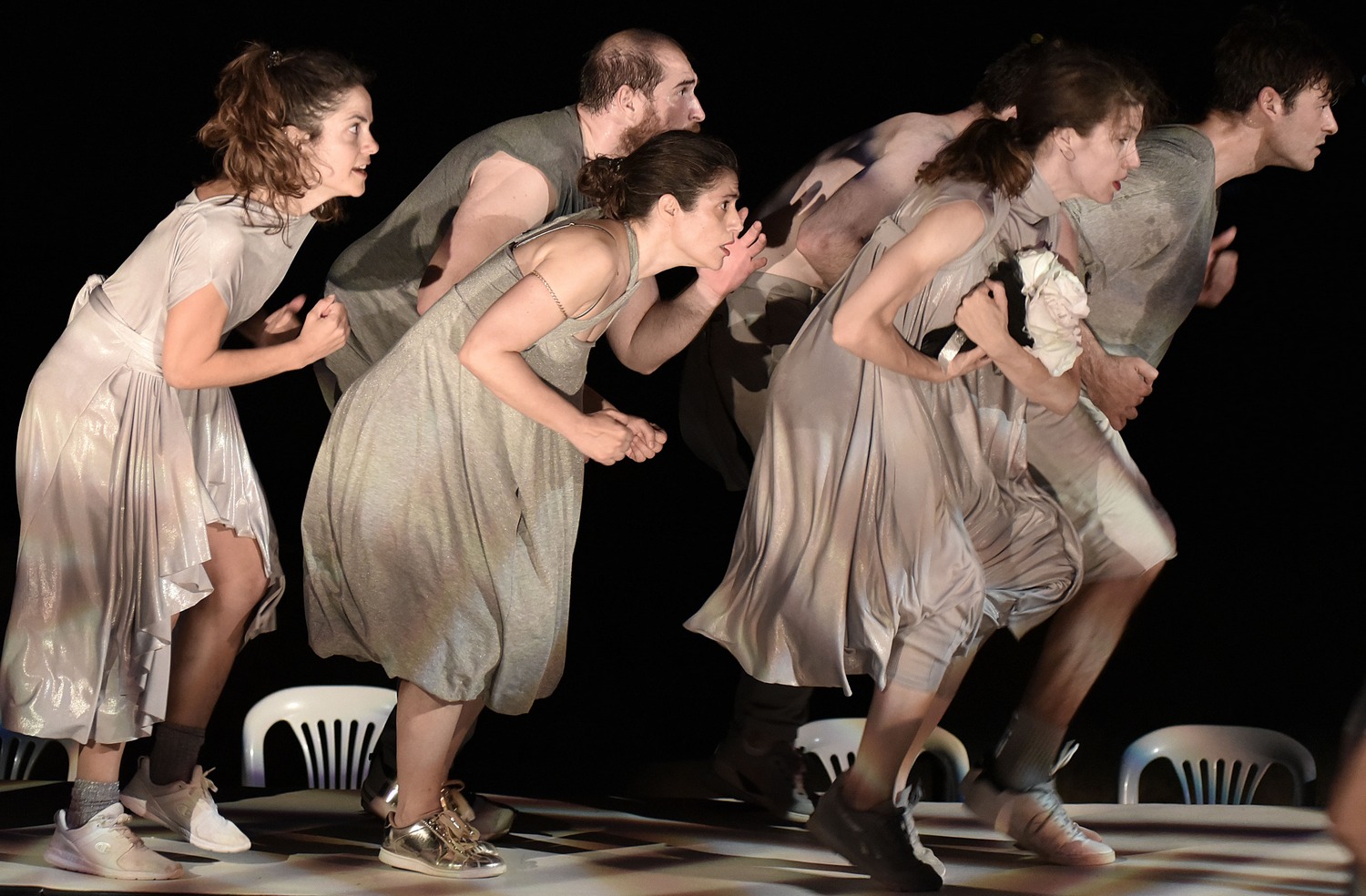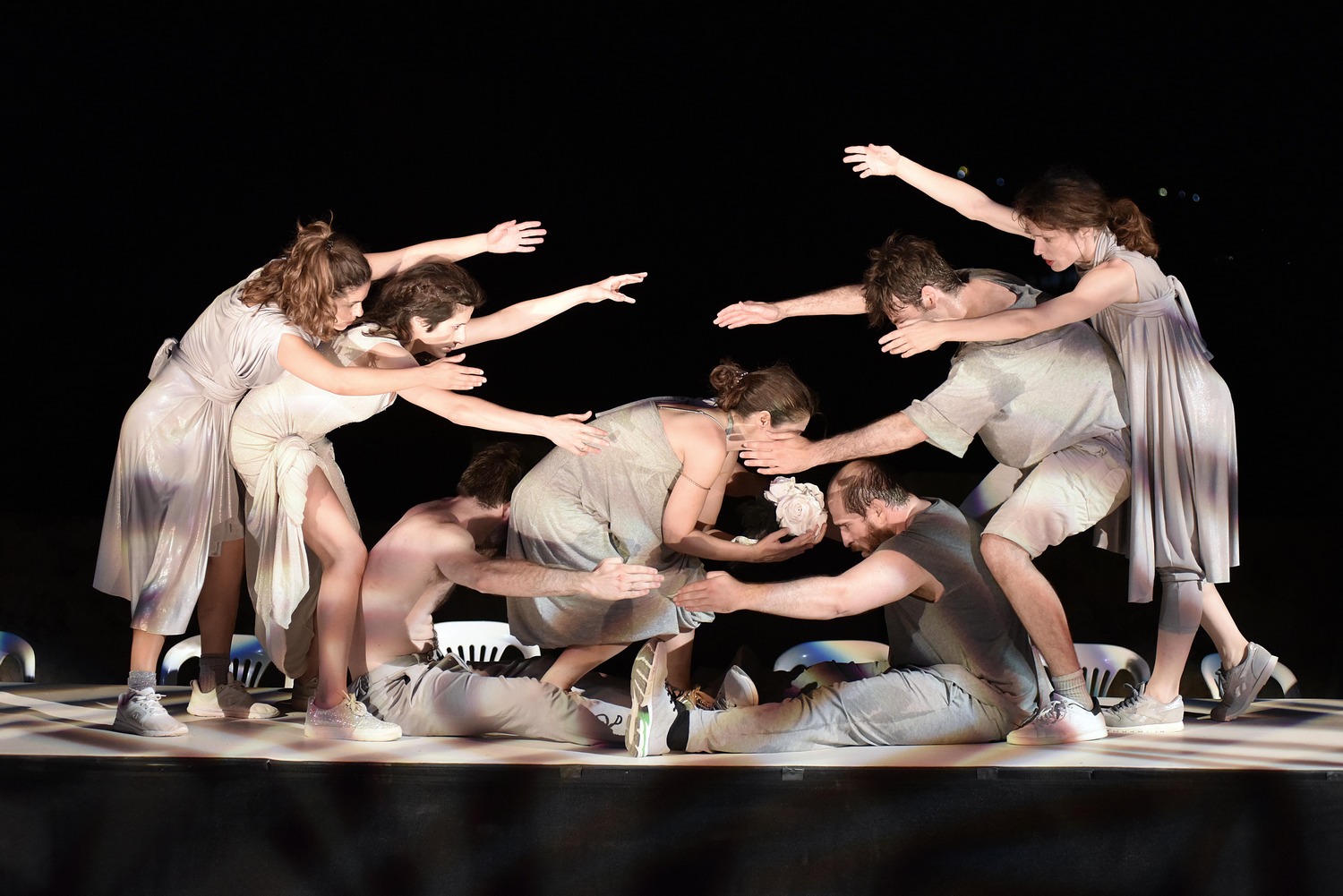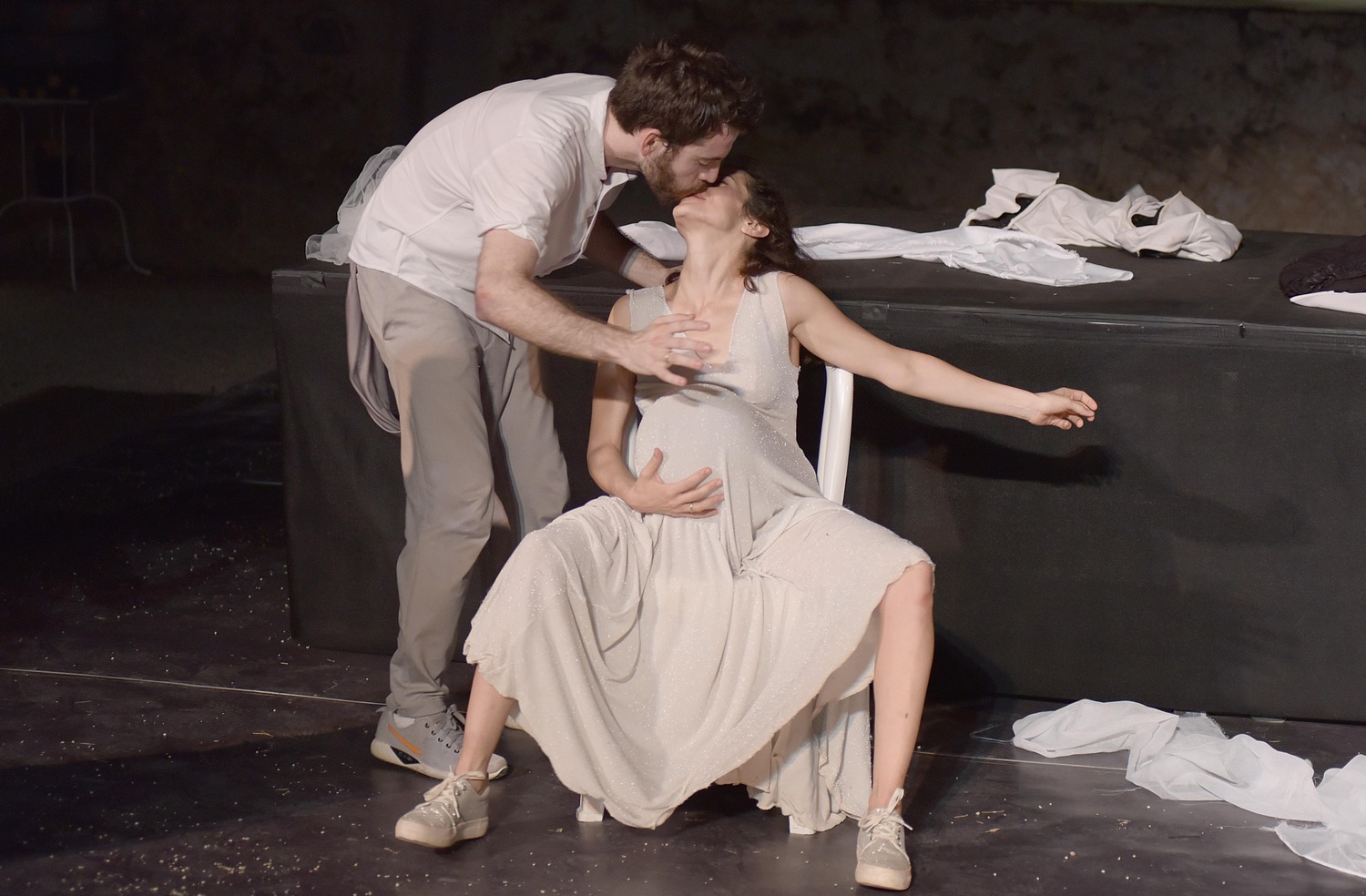Sofia Paschou - Patari Project
Theogony, a great feast
Inspired by Hesiod’s Theogony

Hesiod’s epic, narrative poem, a foundational text of ancient Greek literature (7th century BC) describes the genesis of the world and the lineage of the ancient Greek gods and divinities, attempting a dynamic synthesis of disparate mythological traditions. Invoking the divine inspiration he has received through Zeus and the Muses, Hesiod delivers 1,022 lines drawing on early observations of natural phenomena and the world, the earth, the sky, the stars and the sea. Starting from Chaos giving birth to the first divinities, Eros, Erebus and Nyx, the poem then moves on to the union between Gaea and Uranus, the castration of the tyrannical Uranus by his son, Cronus, the emergence of the Olympian gods, the myths of Prometheus and Pandora, the Titanomachy, the demolition of paternal power when Zeus dethrones Cronus.
The phantasmagorical universe of Theogony brims with romantic couplings, weddings and births, conflicts and achievements, constituting above all a game of succession, the transfer of power from one generation to the next: from Gaea to Uranus to Cronus and, ultimately, to Zeus, who is presented as the deterministic culmination of things, power in its most legitimized form. In contrast to his predecessors, Zeus is cast as the all-wise and just father-ruler who enjoys the support of his subjects. The docile goddesses by his side have seemingly replaced the earlier menacing female figures.
With Greek and English surtitles
Related Events
Duration 90'
Little Theatre of Ancient Epidaurus
- 05/07 until 06/07/2019 at 21:30
all events
Opera | Theatre | Dance | Premiere | Greek Debut

